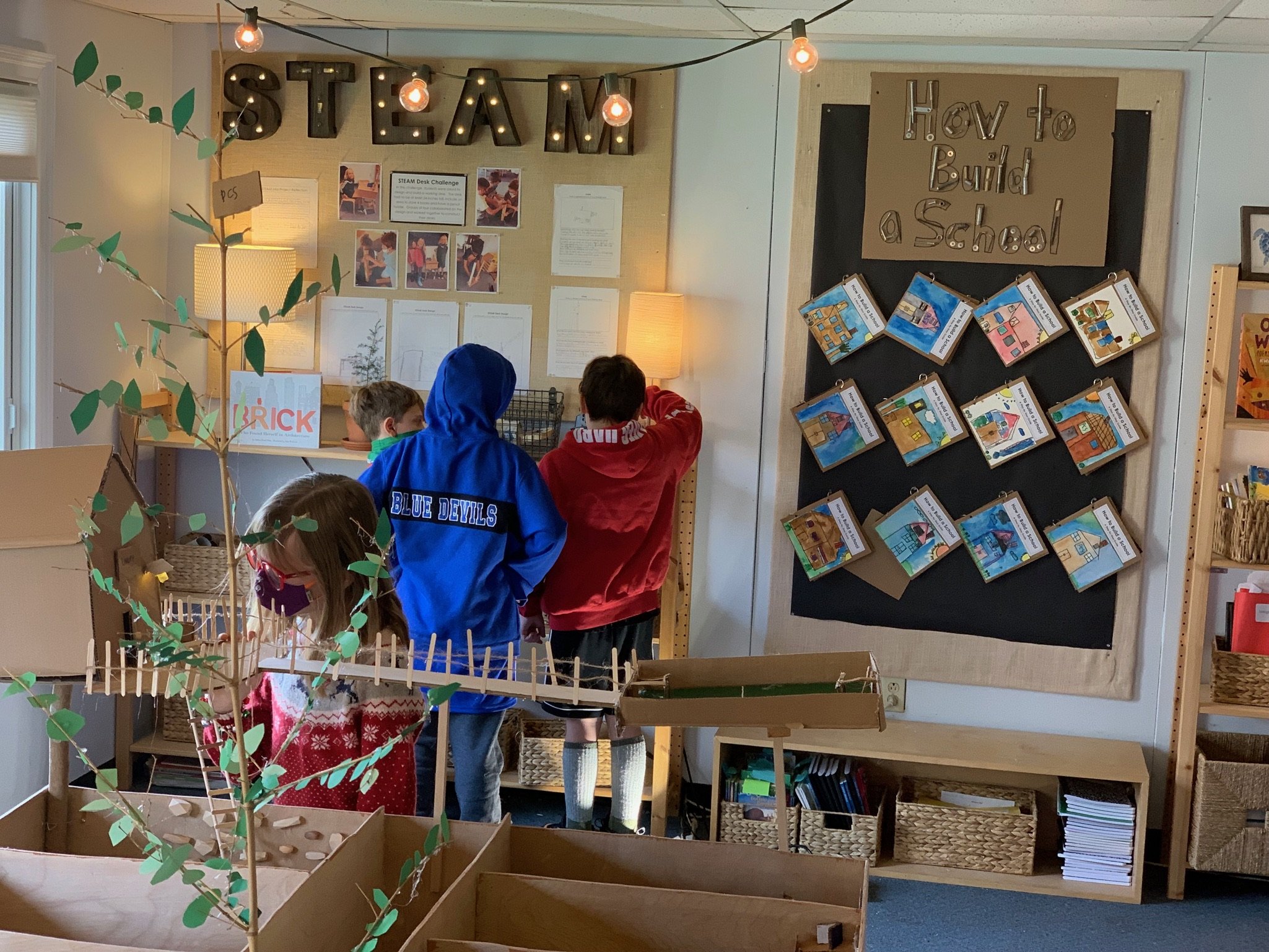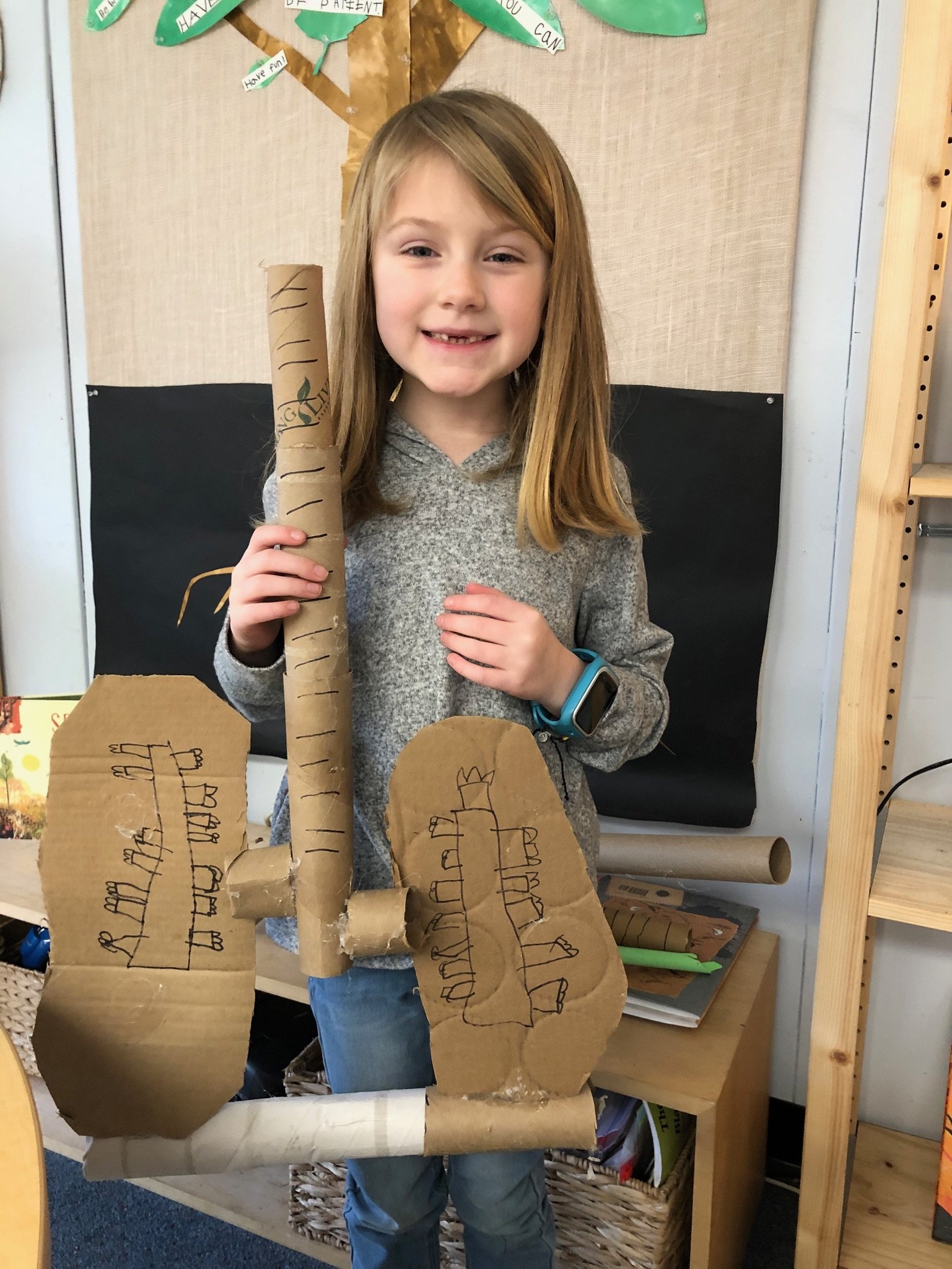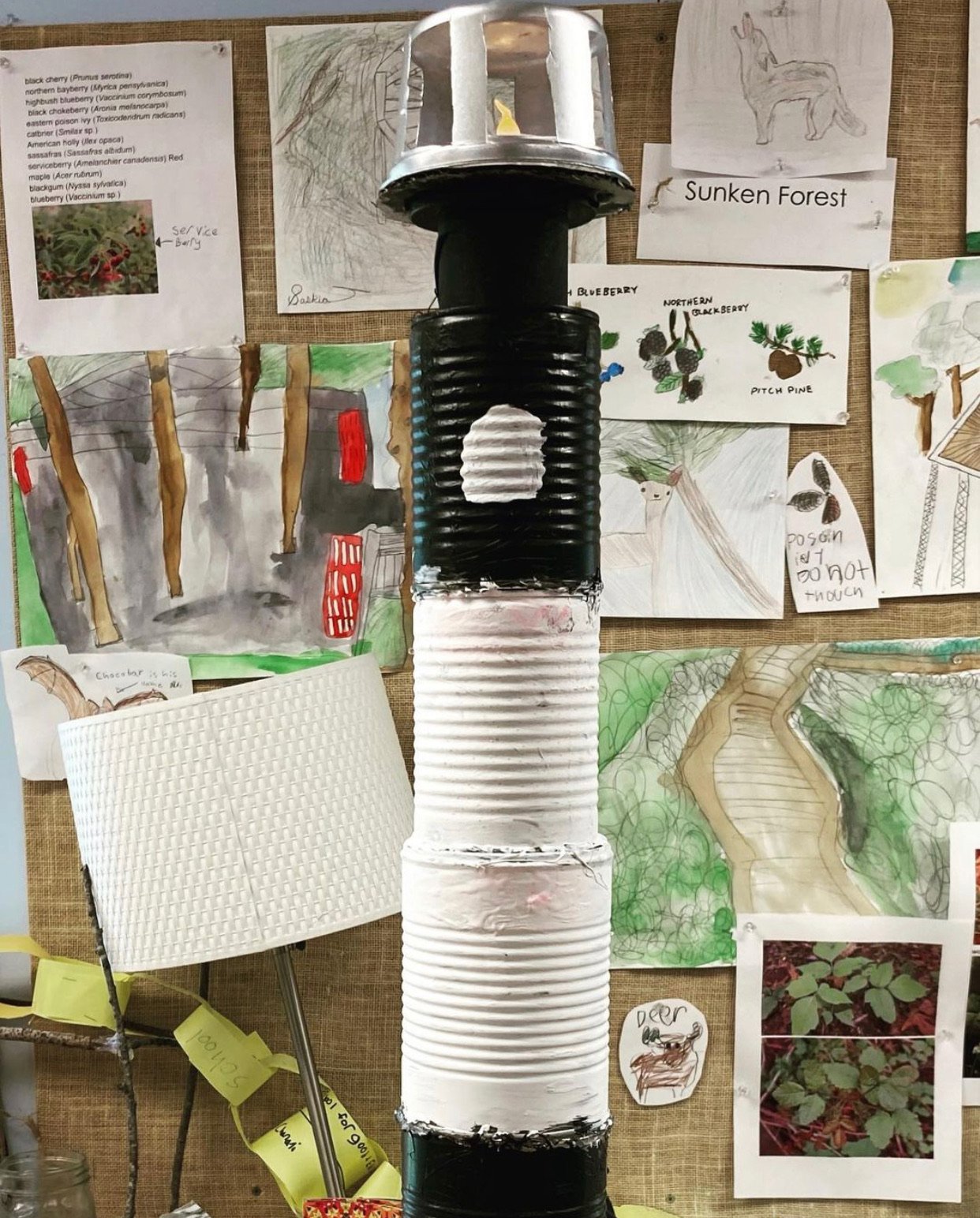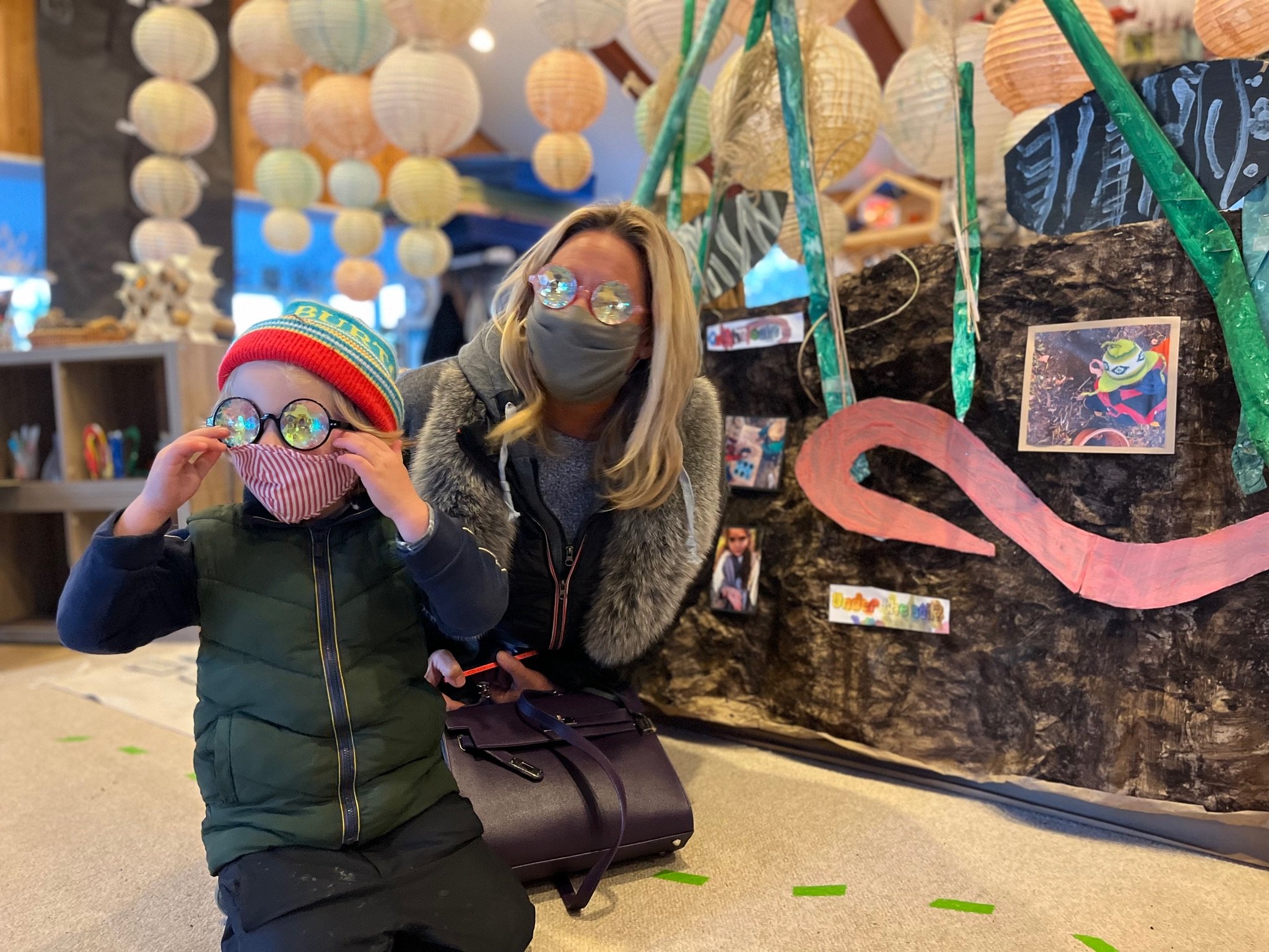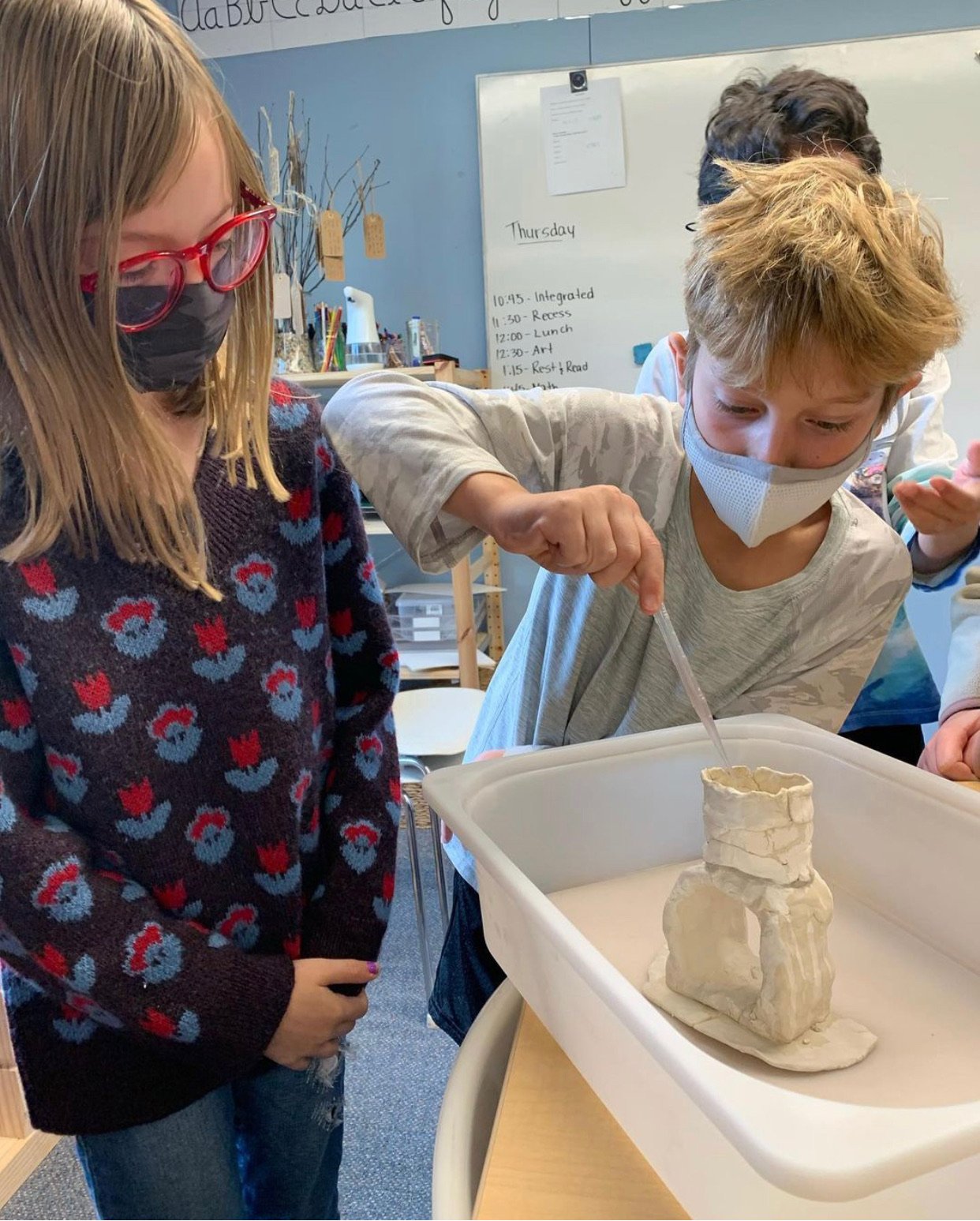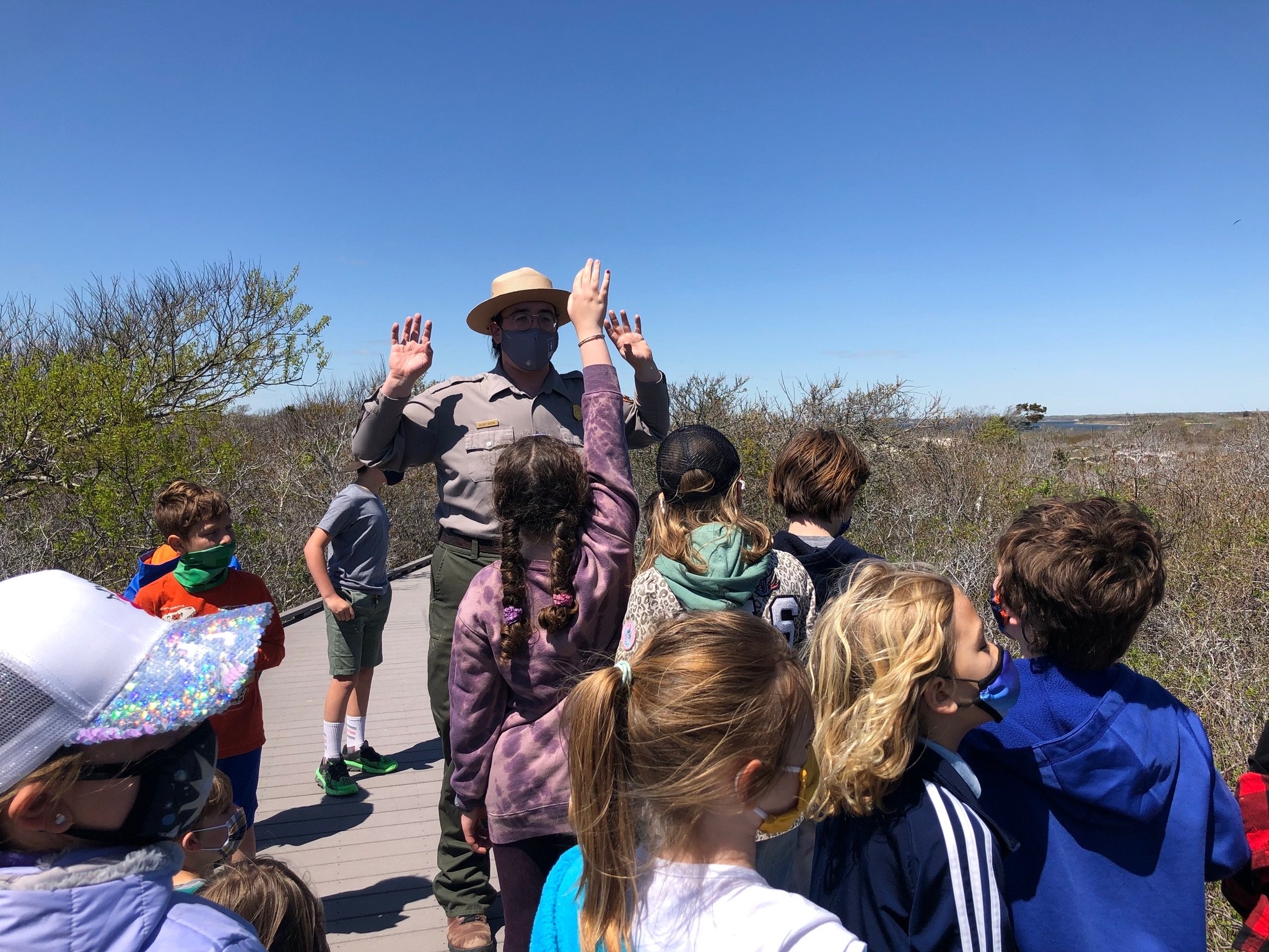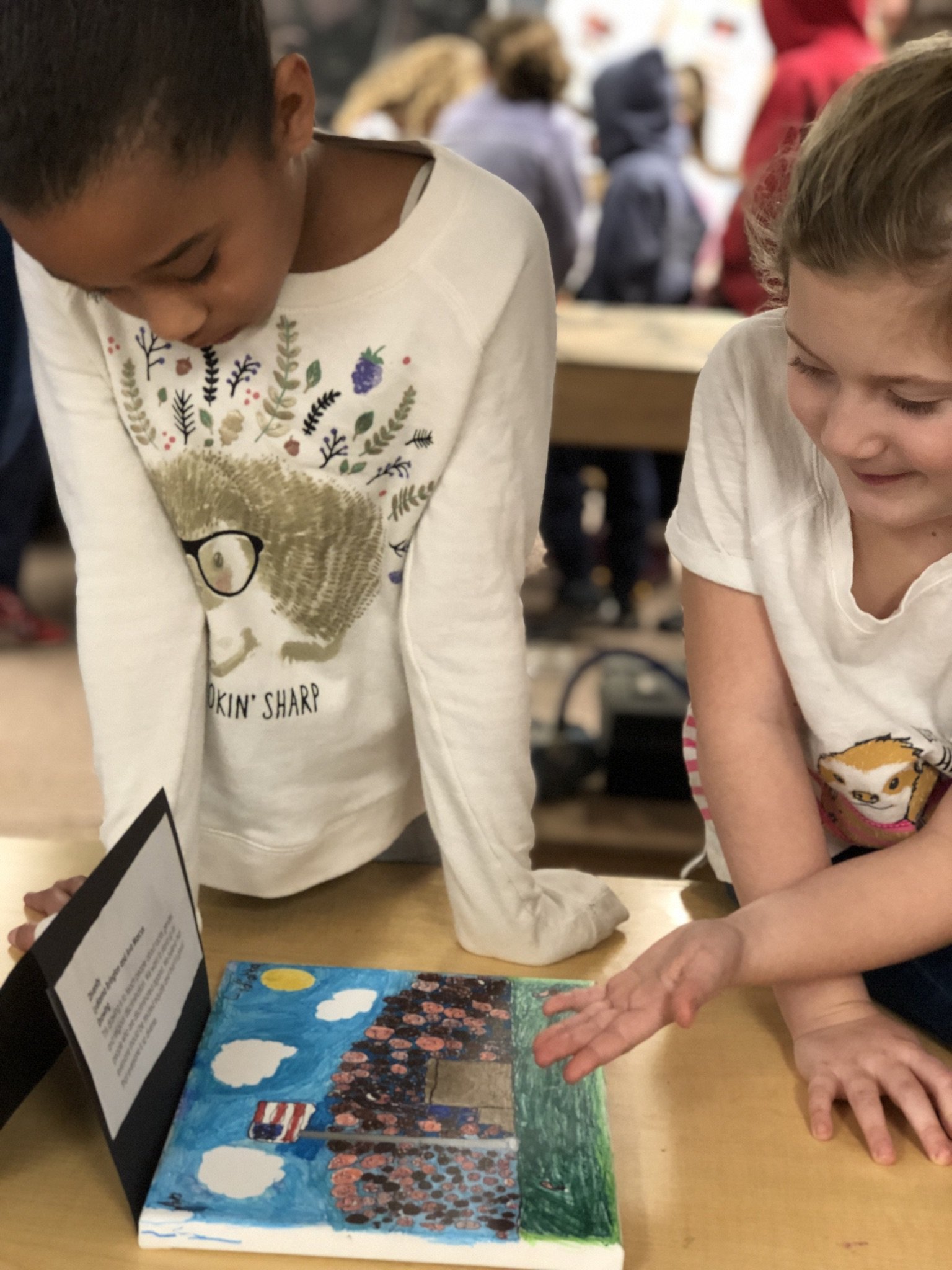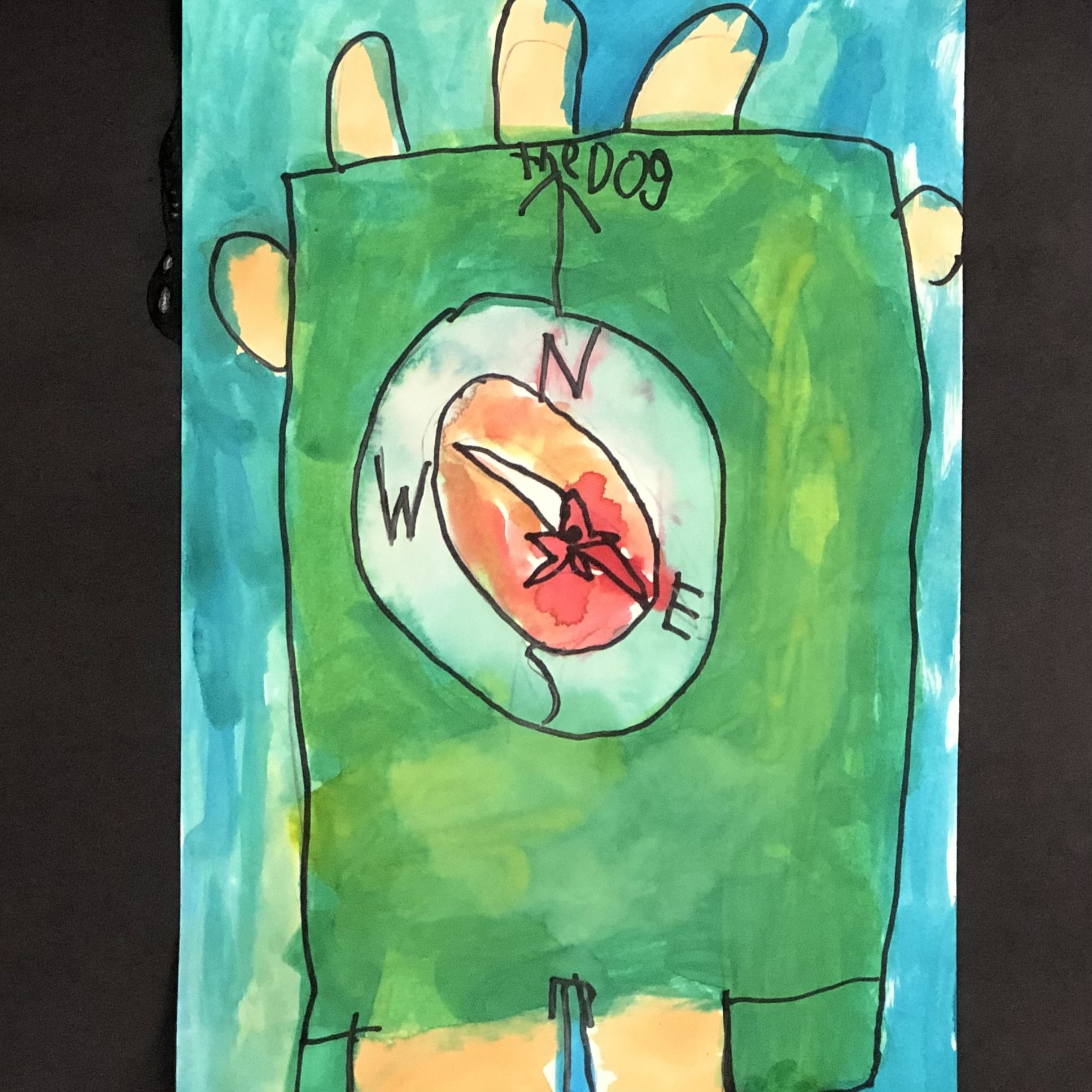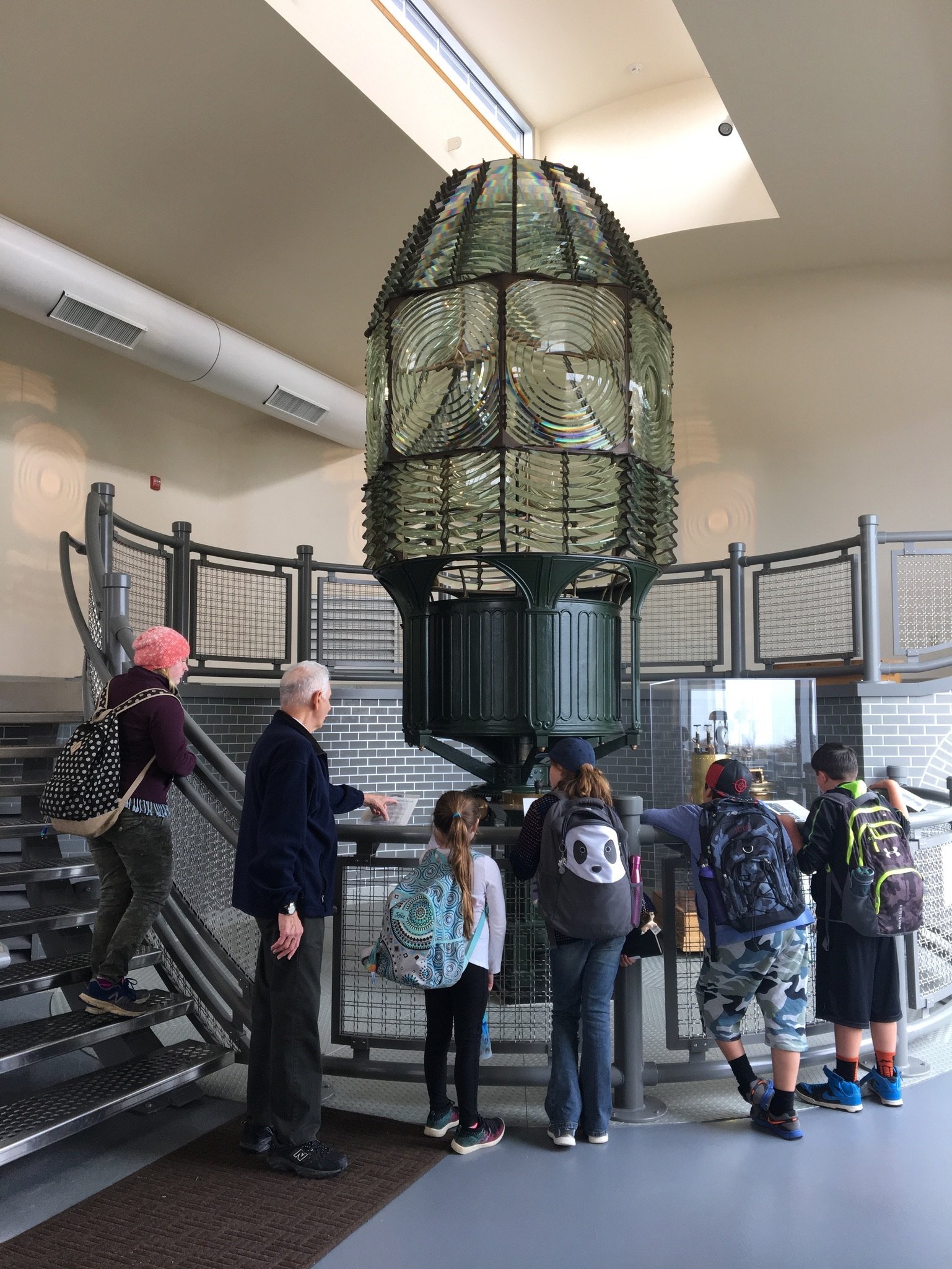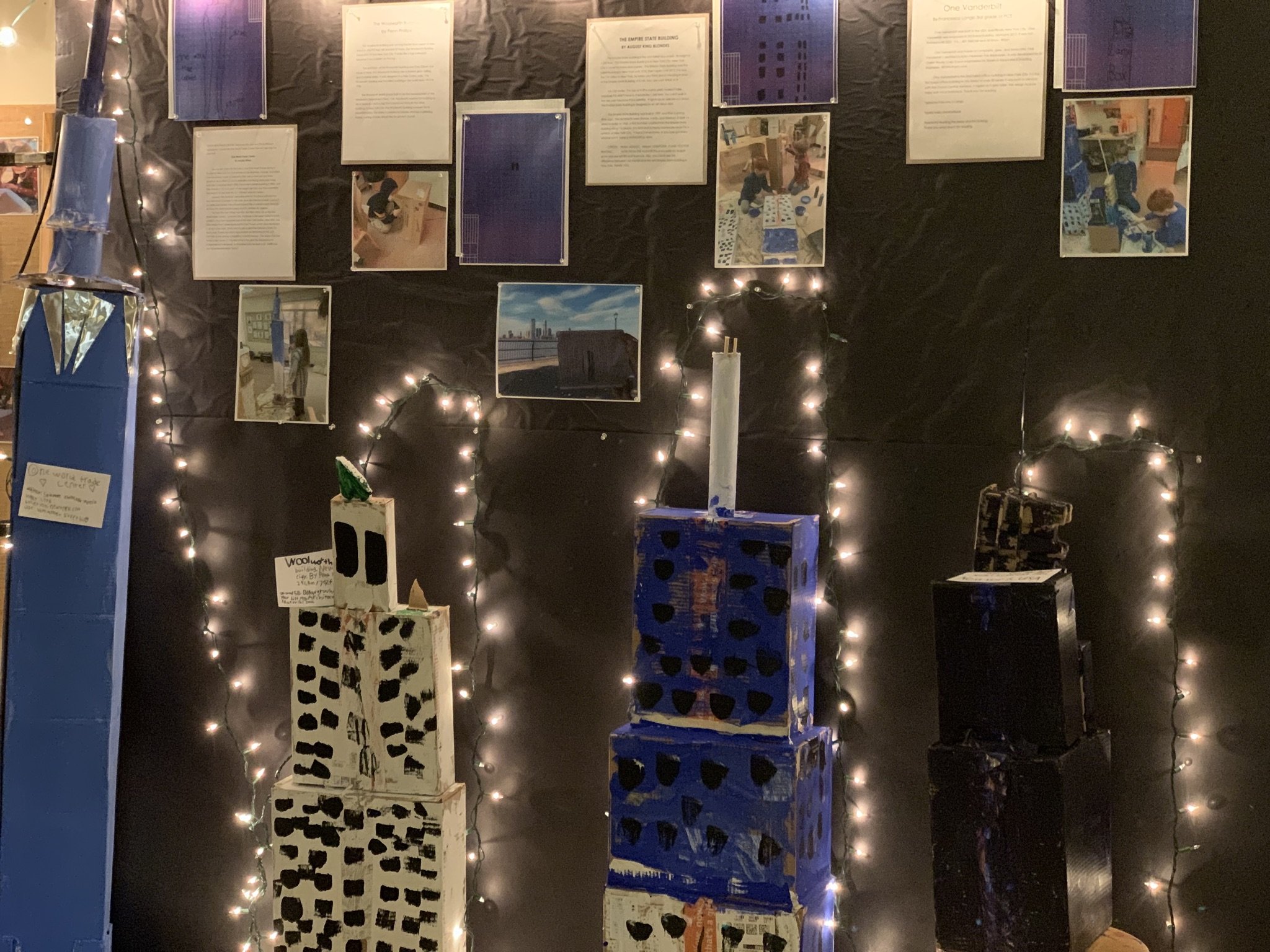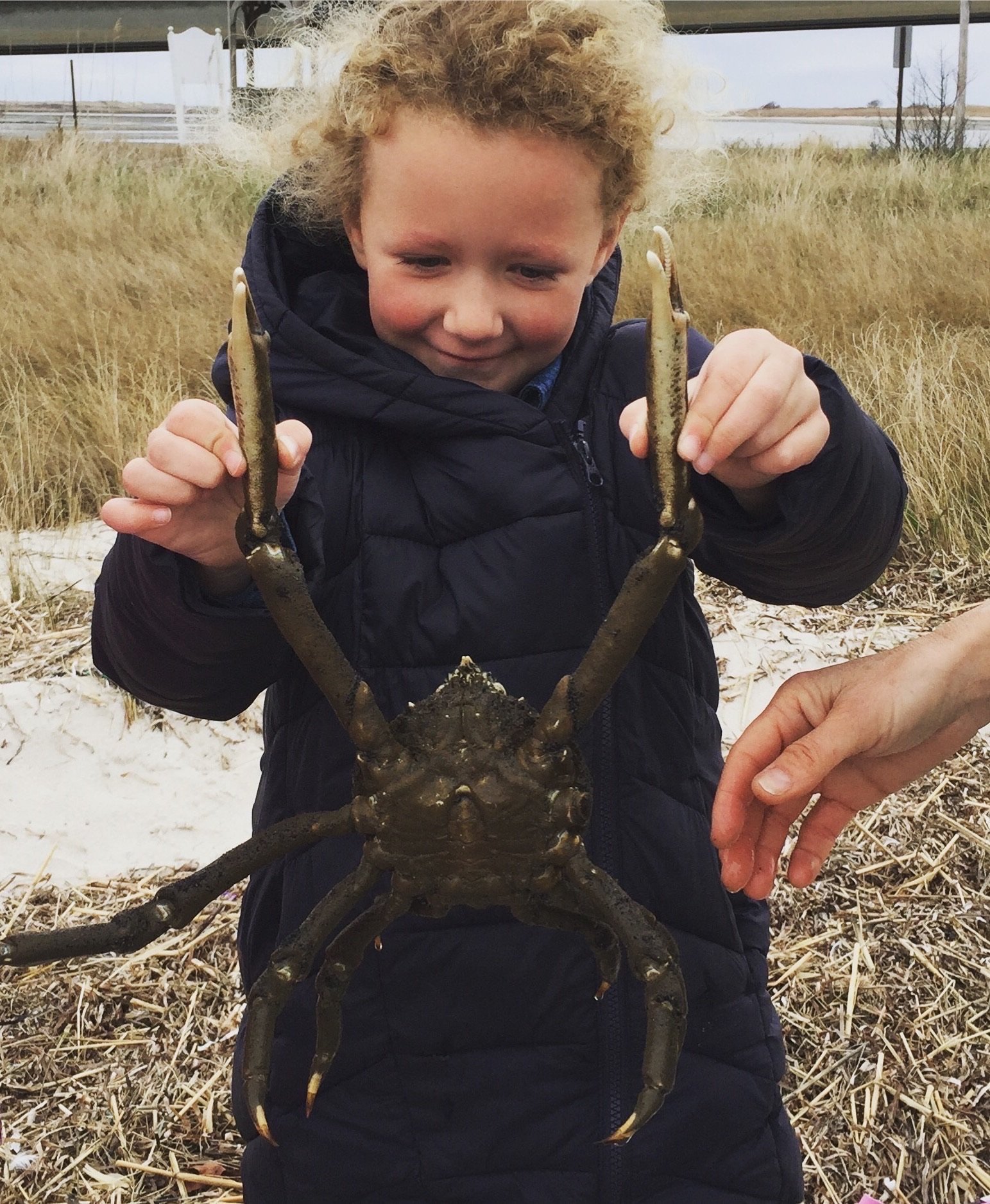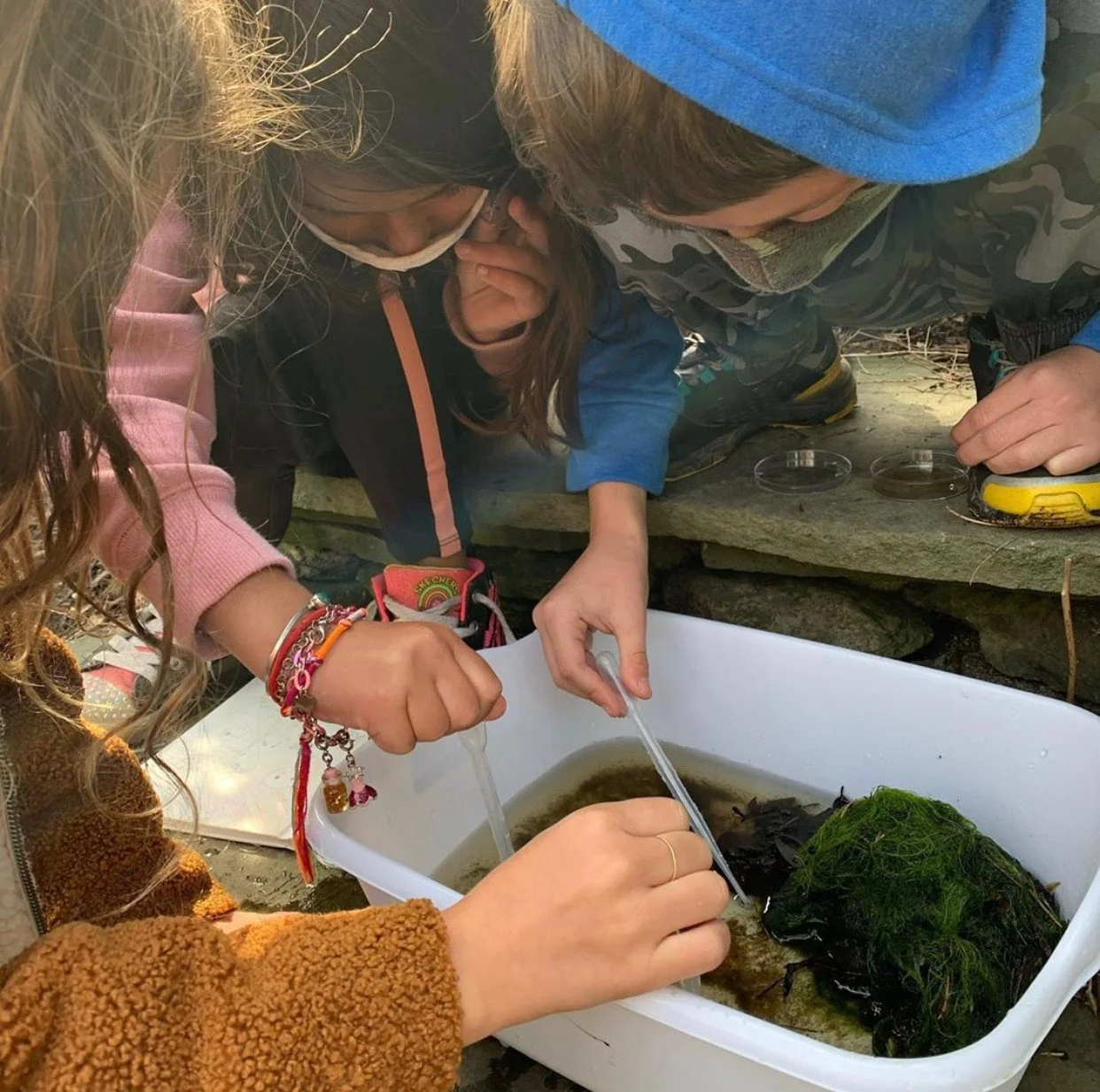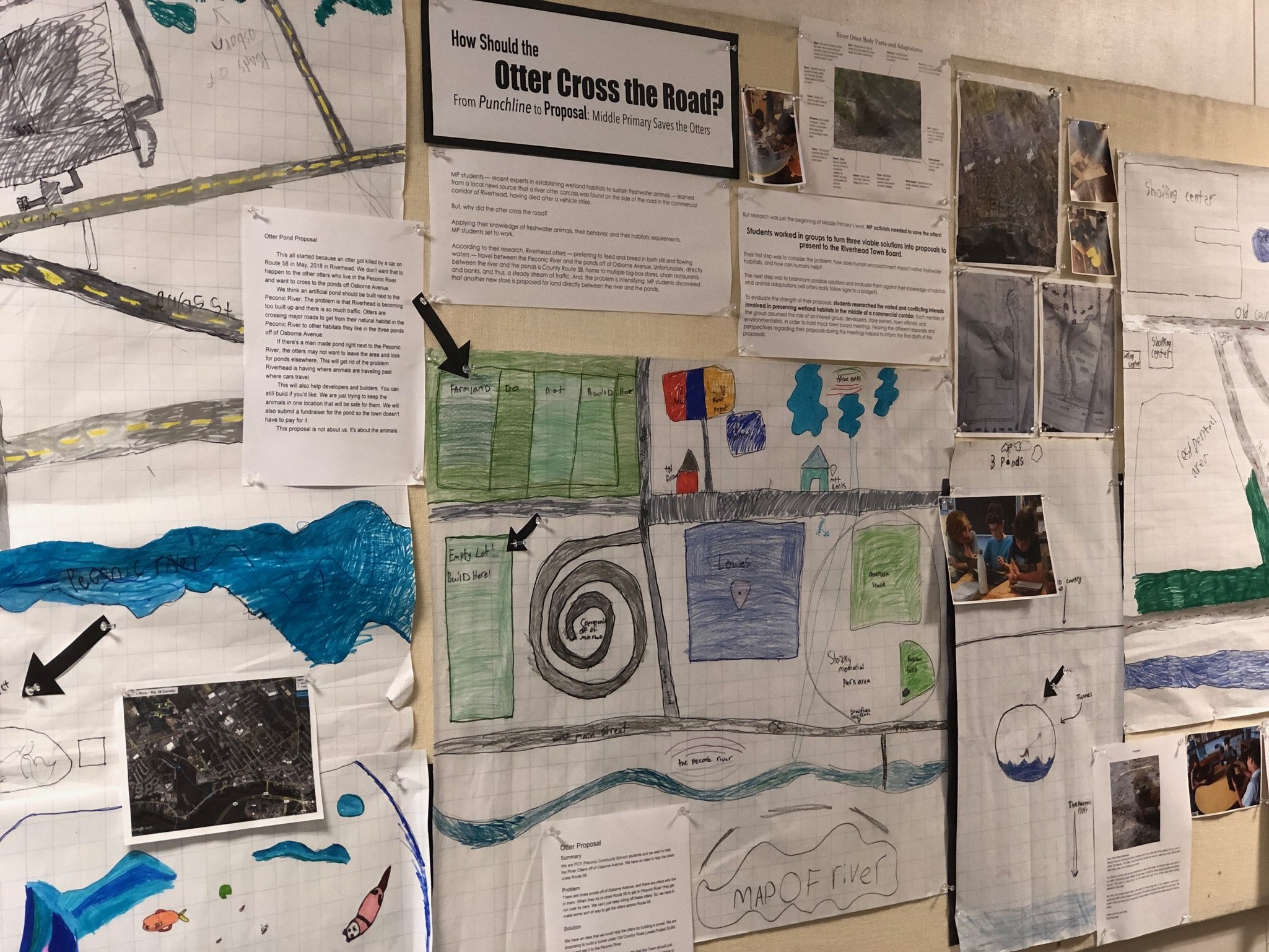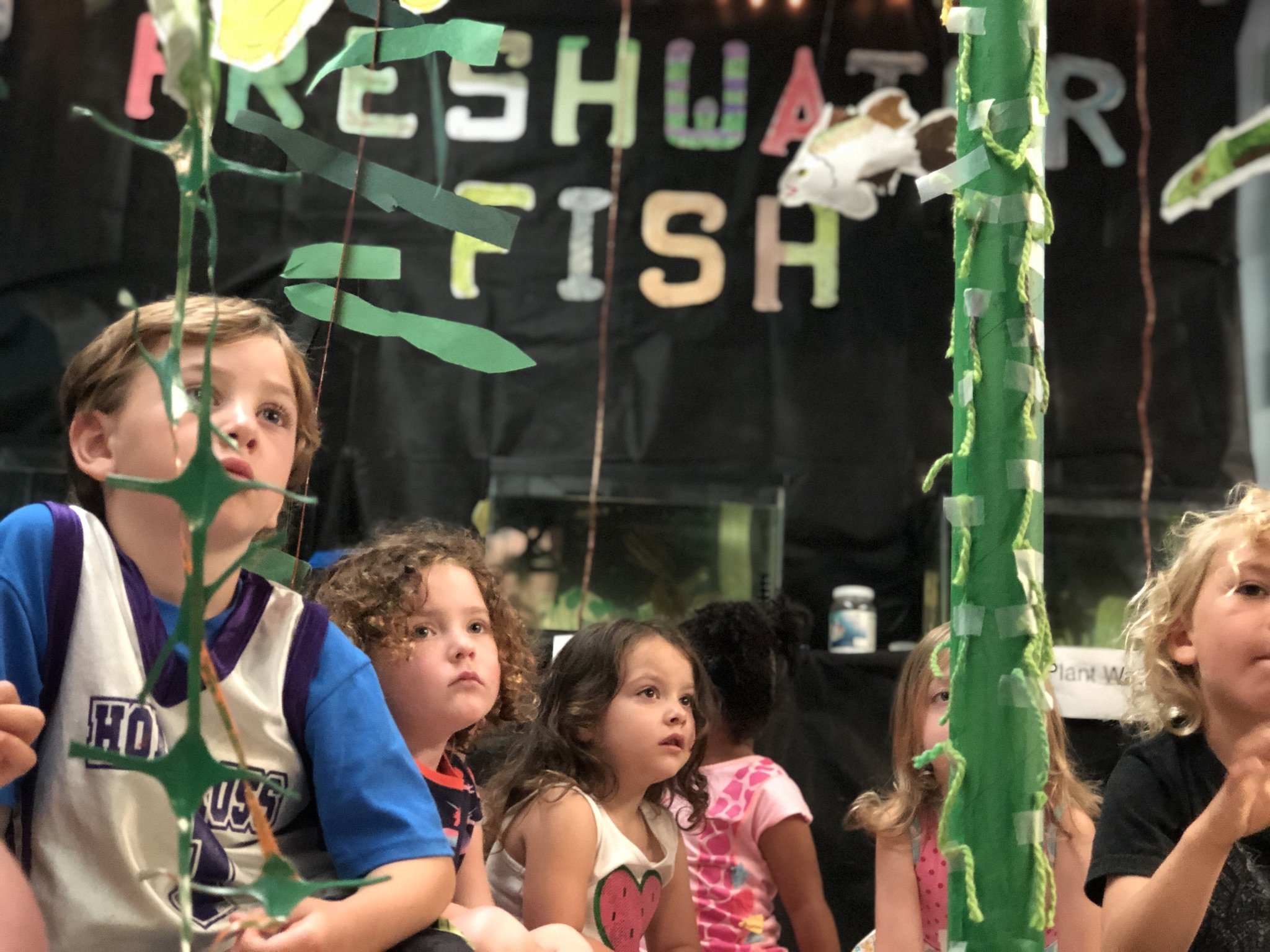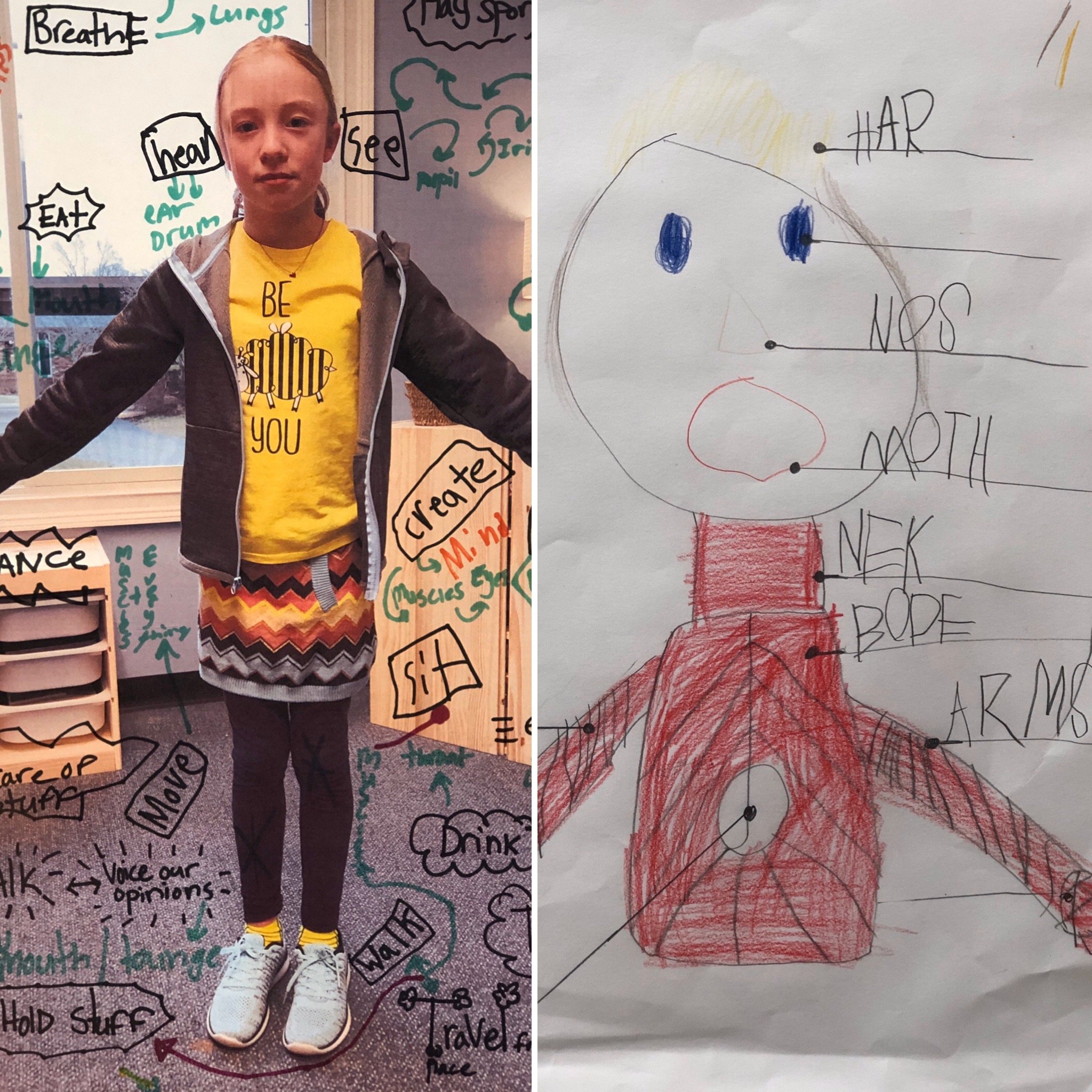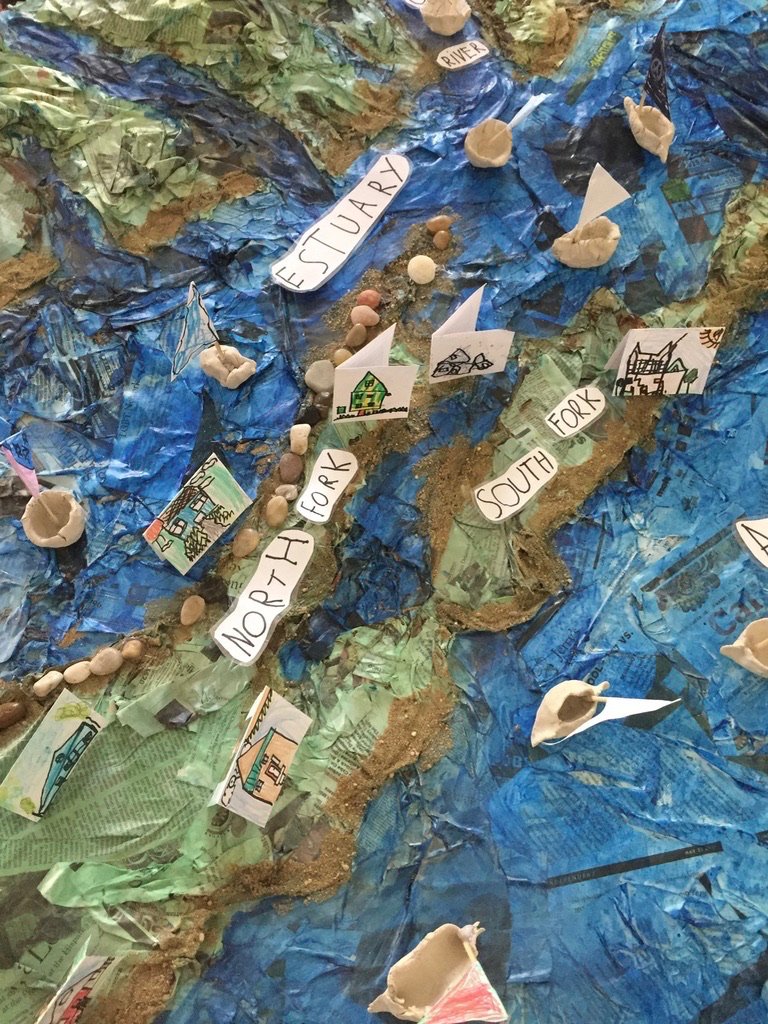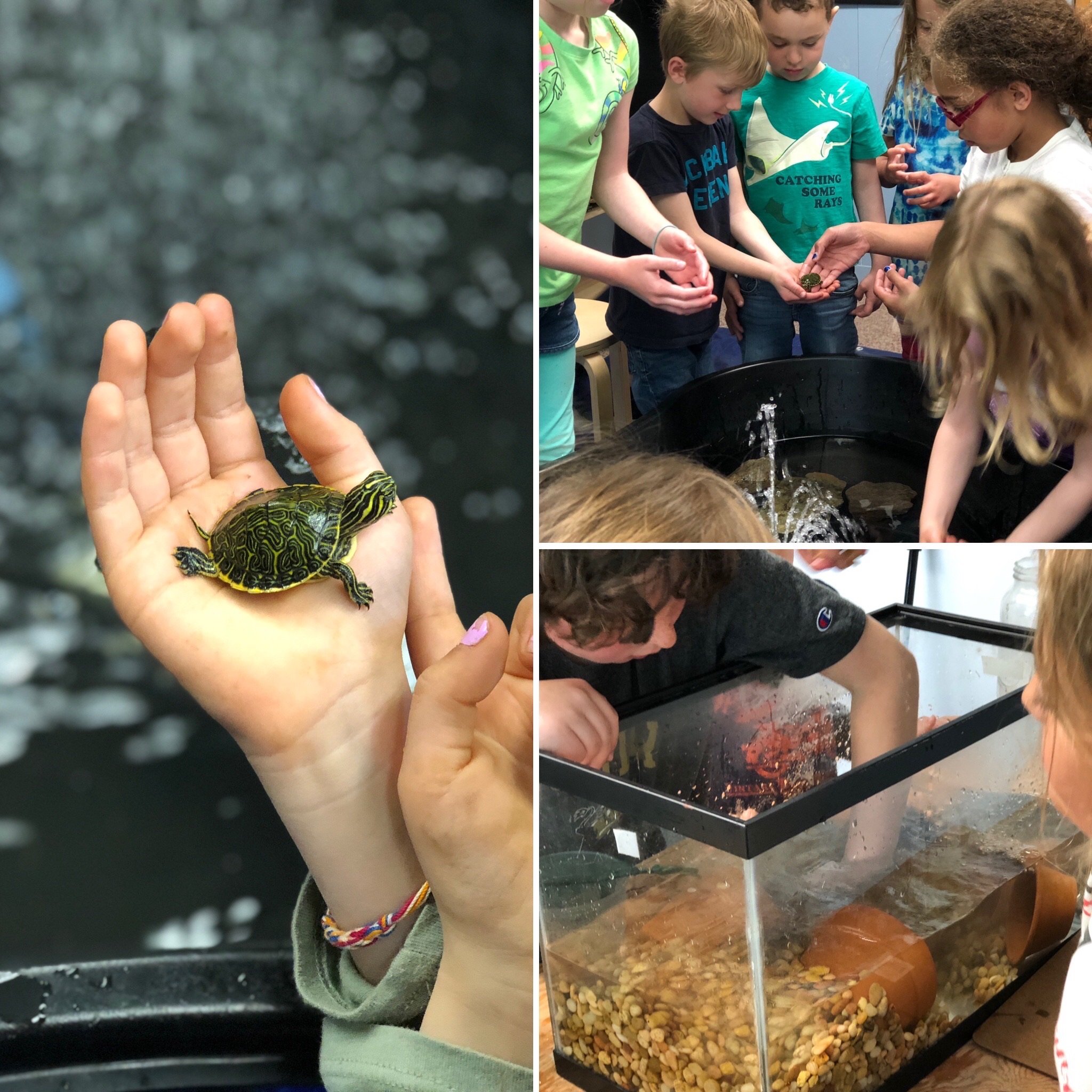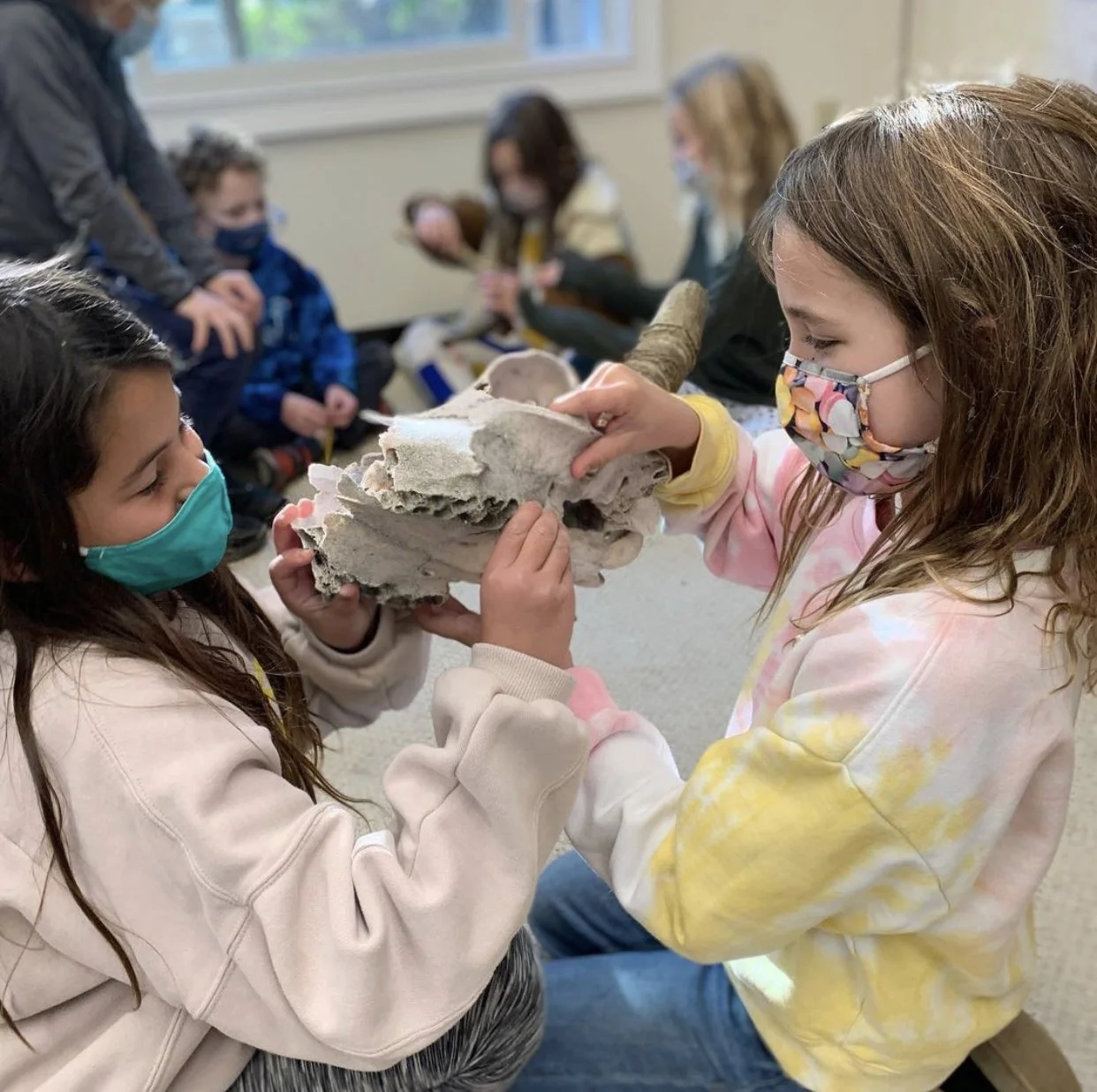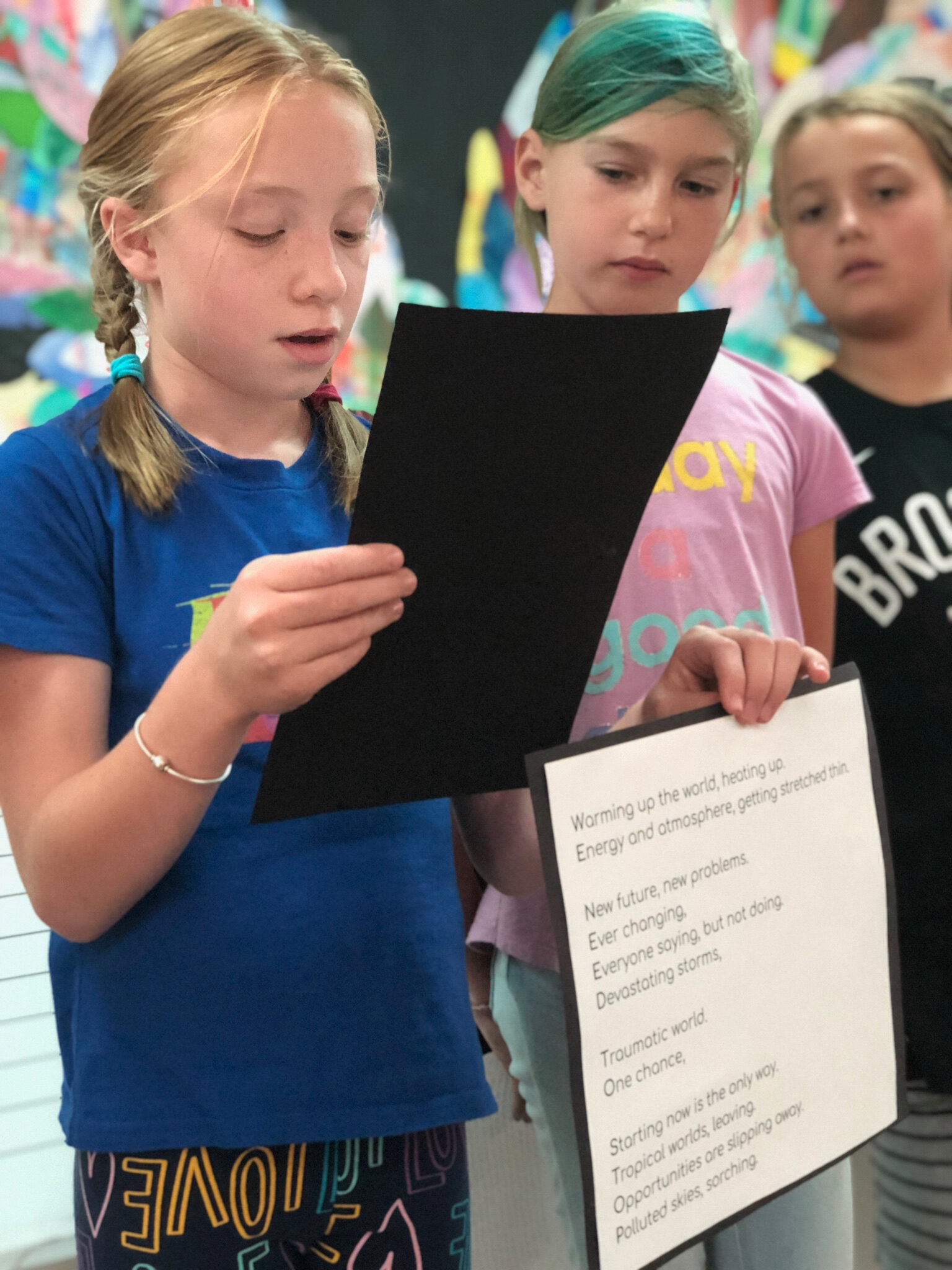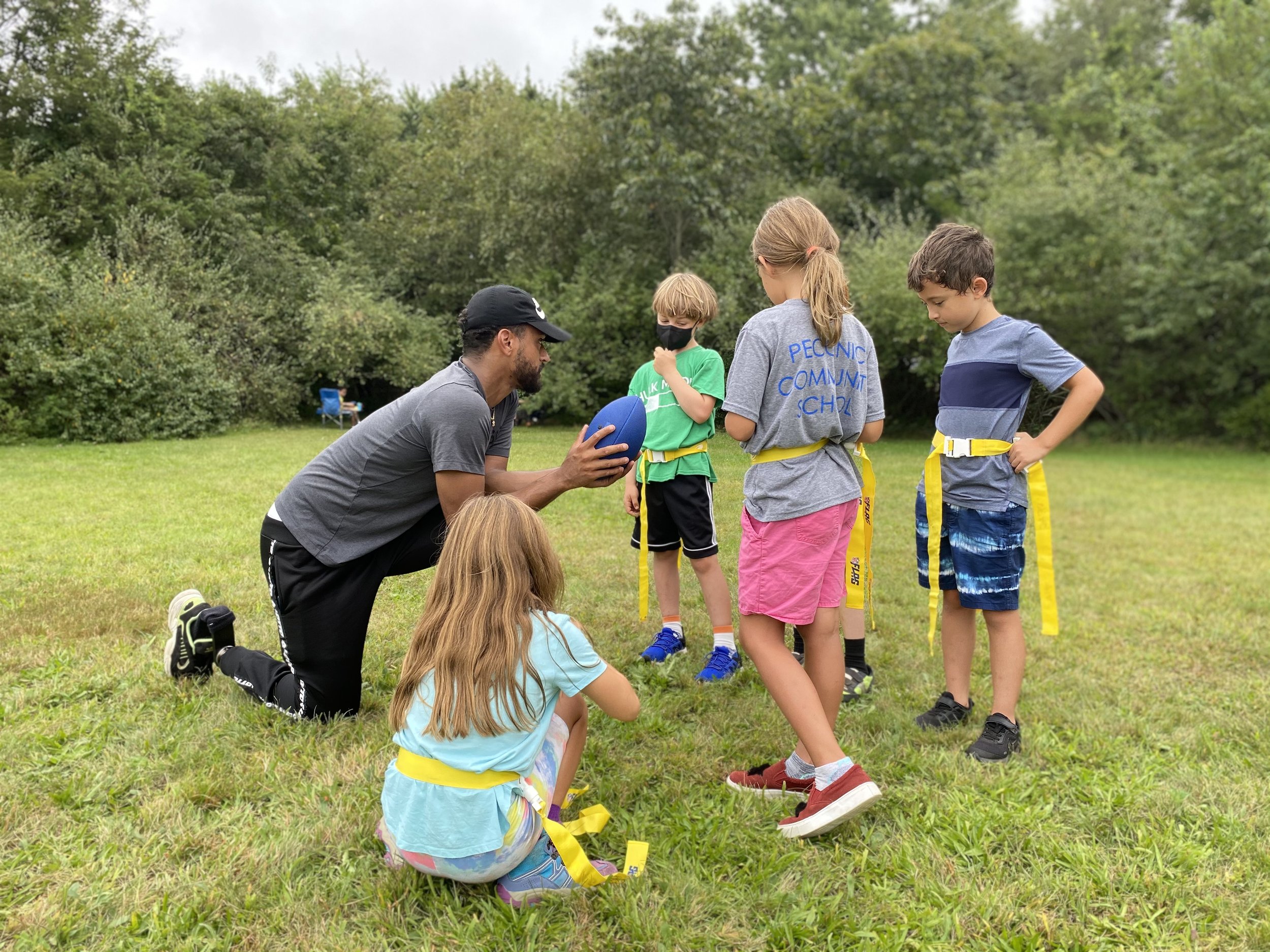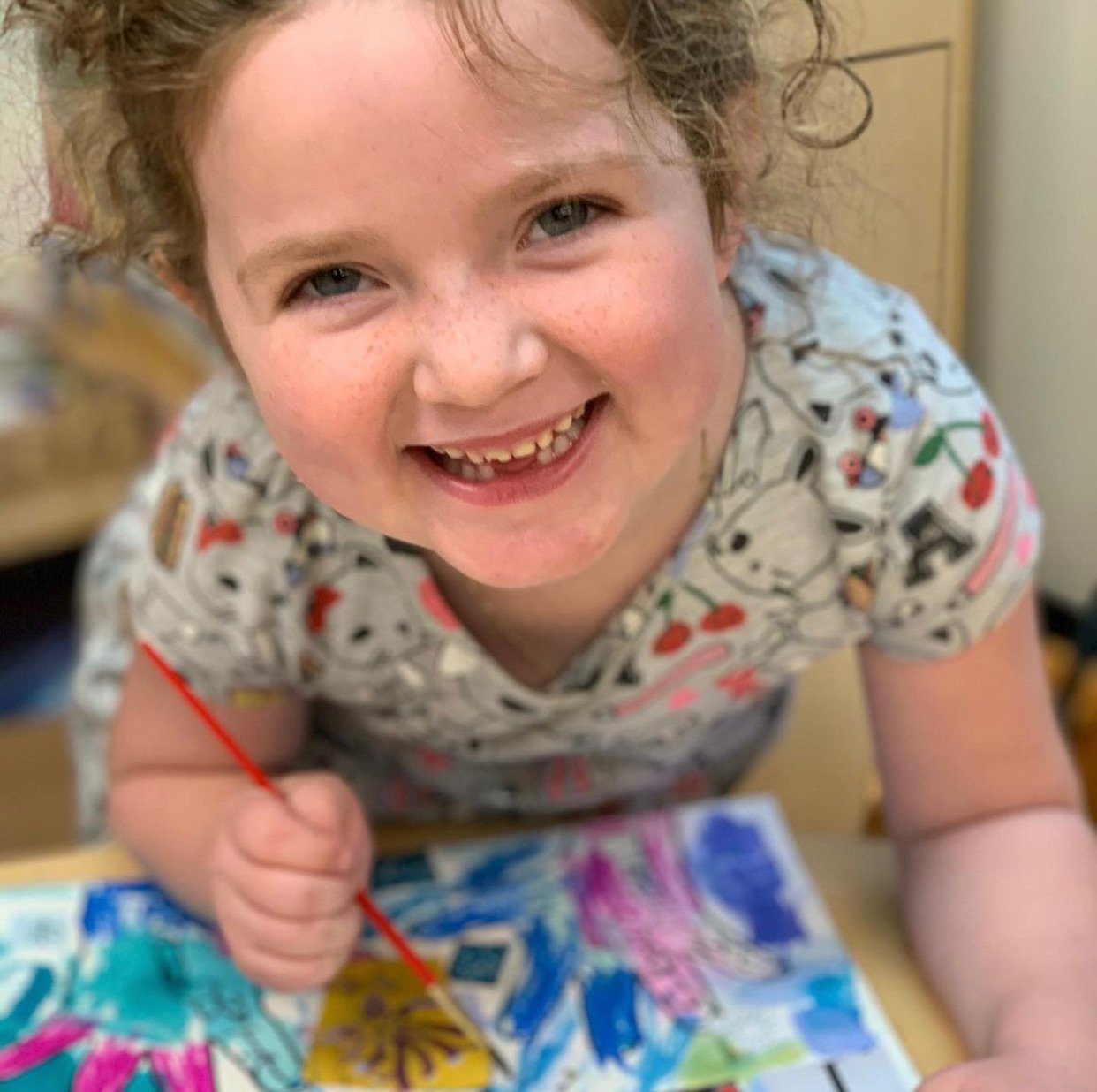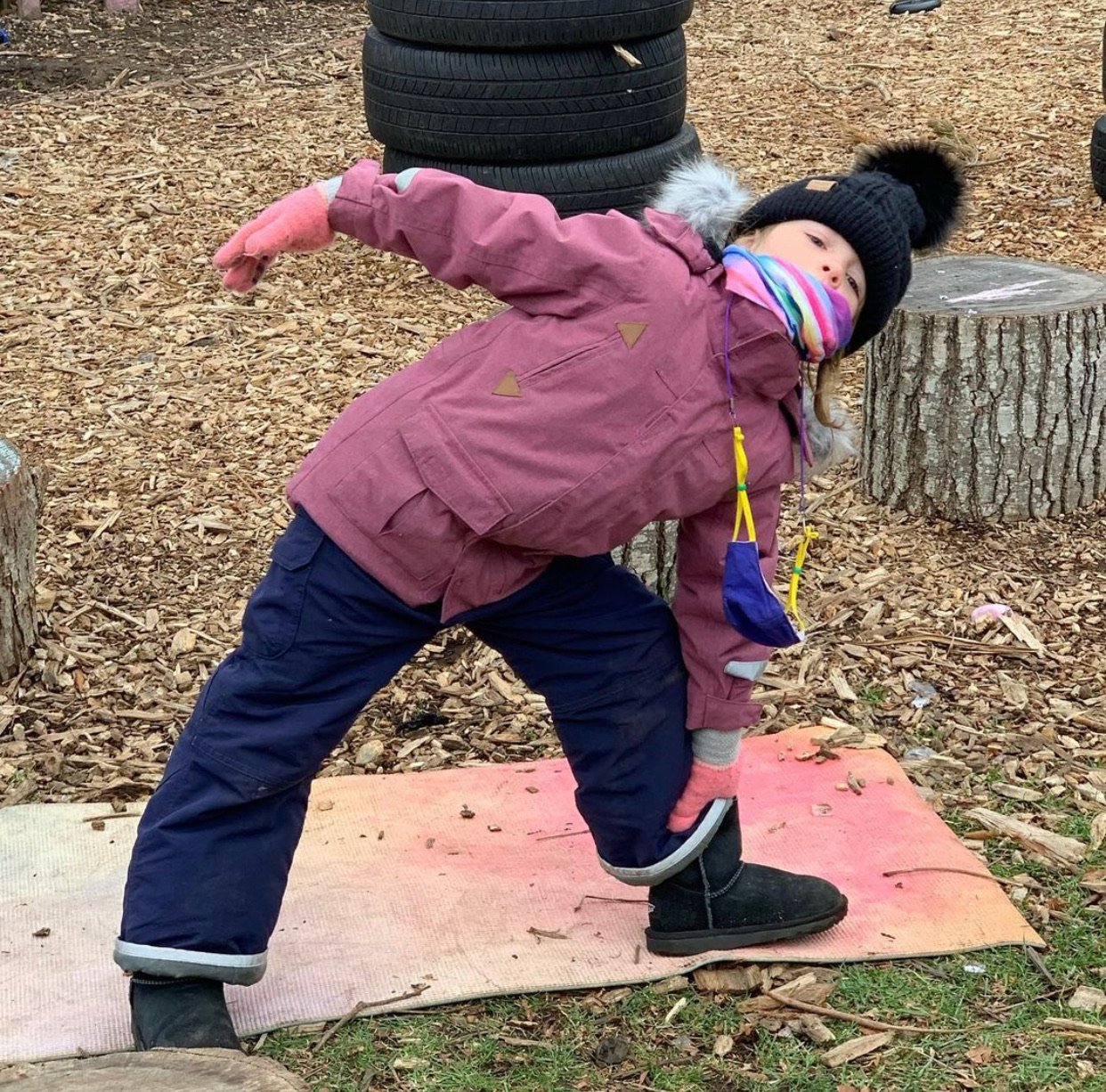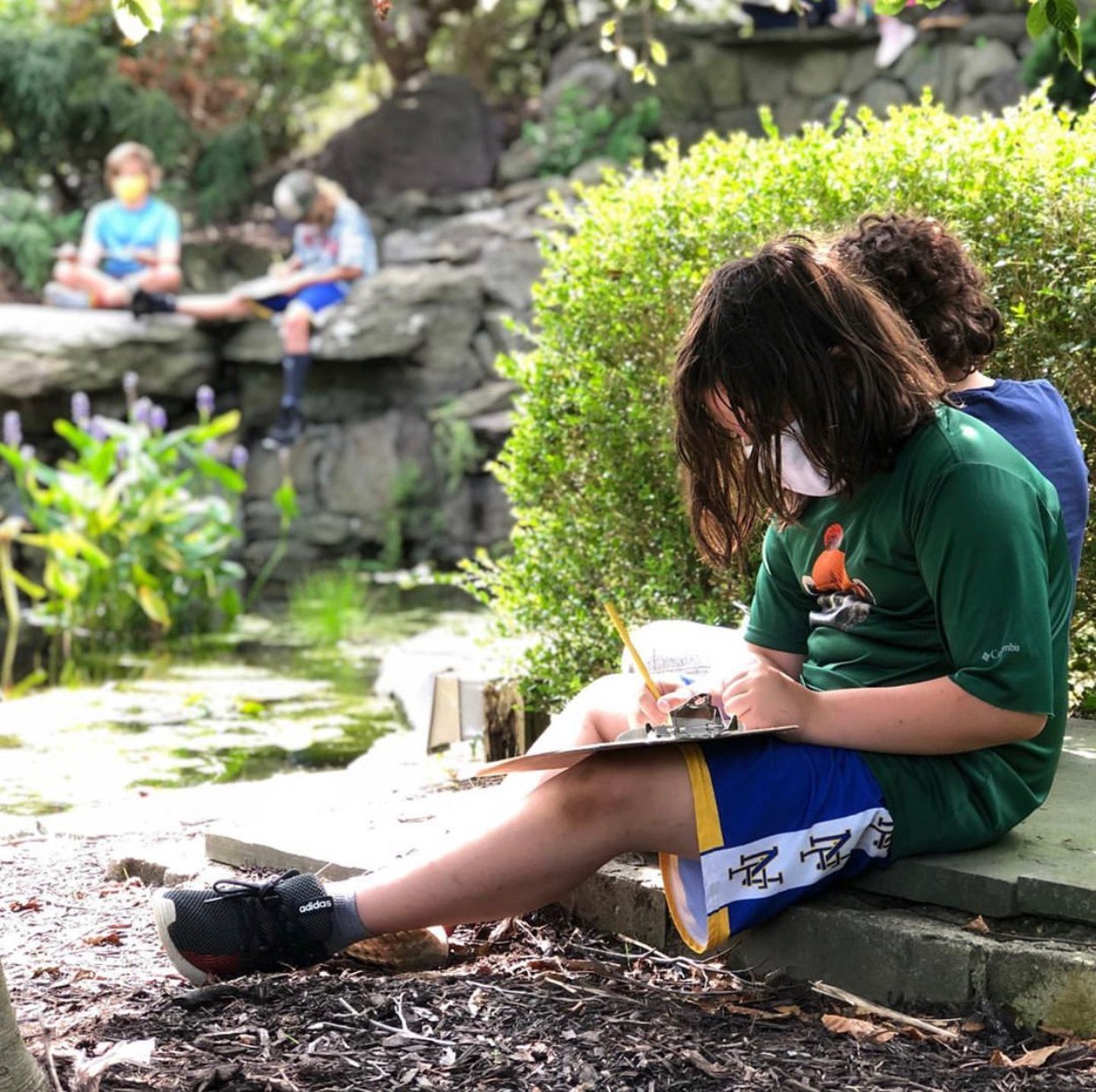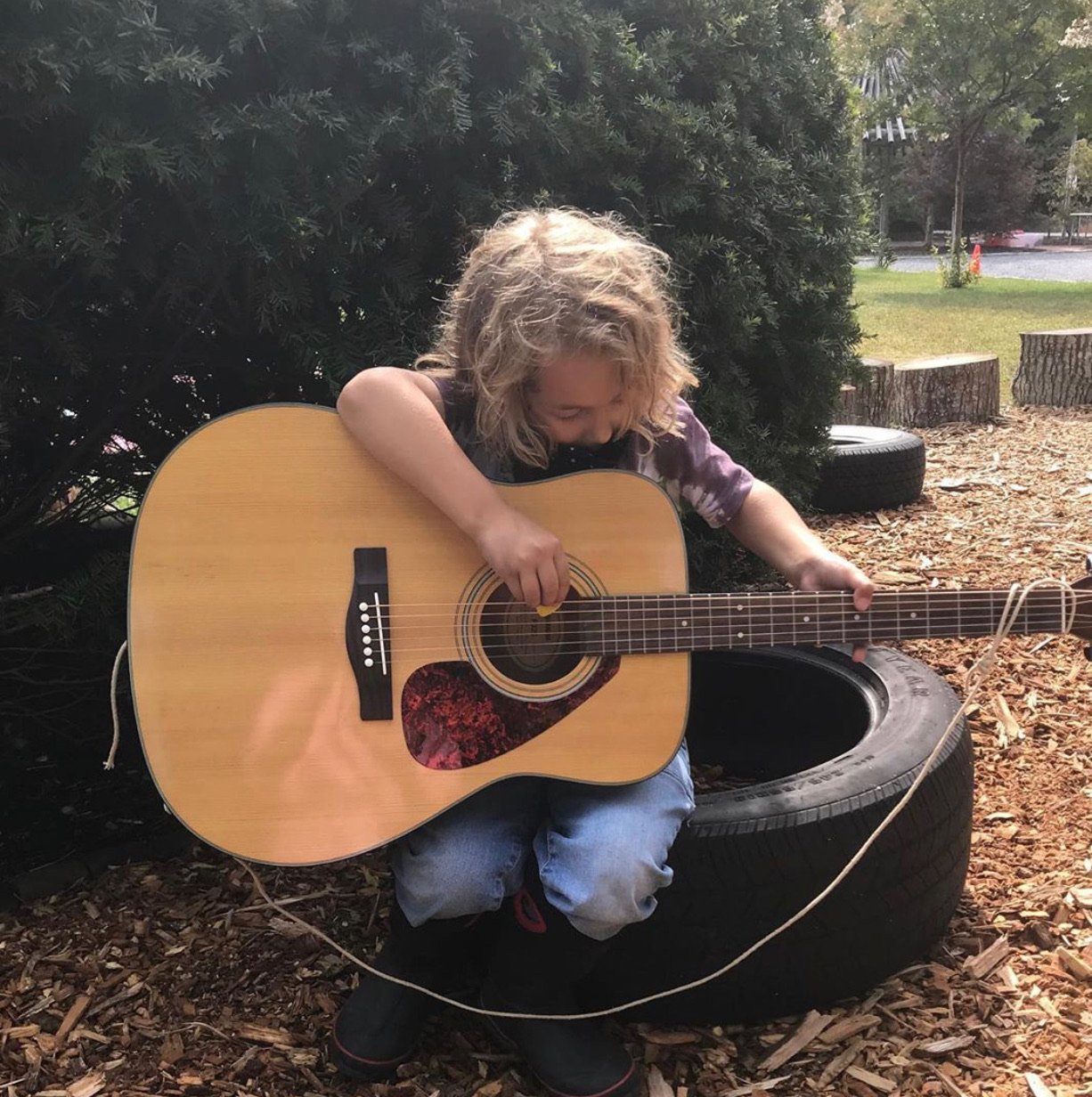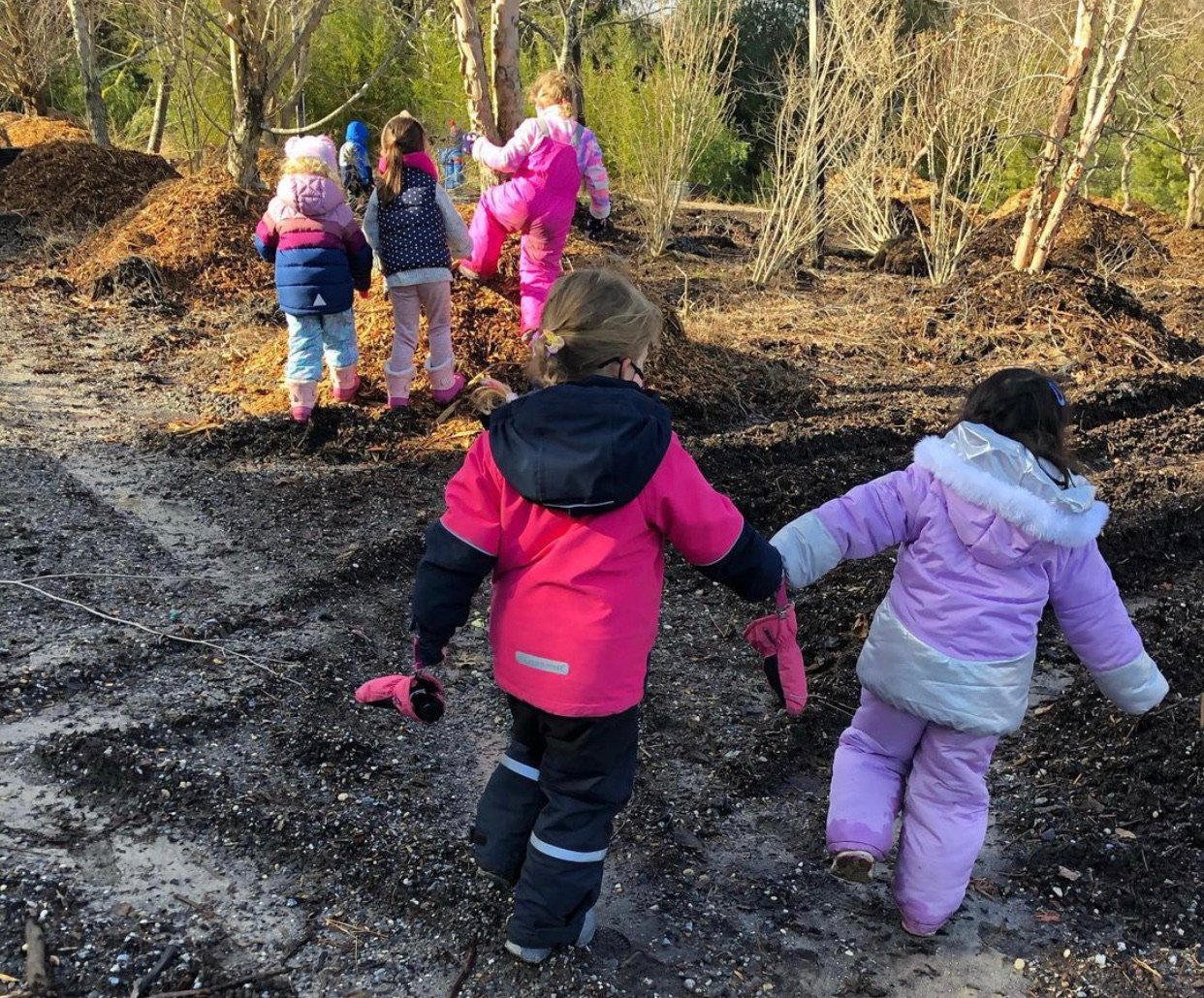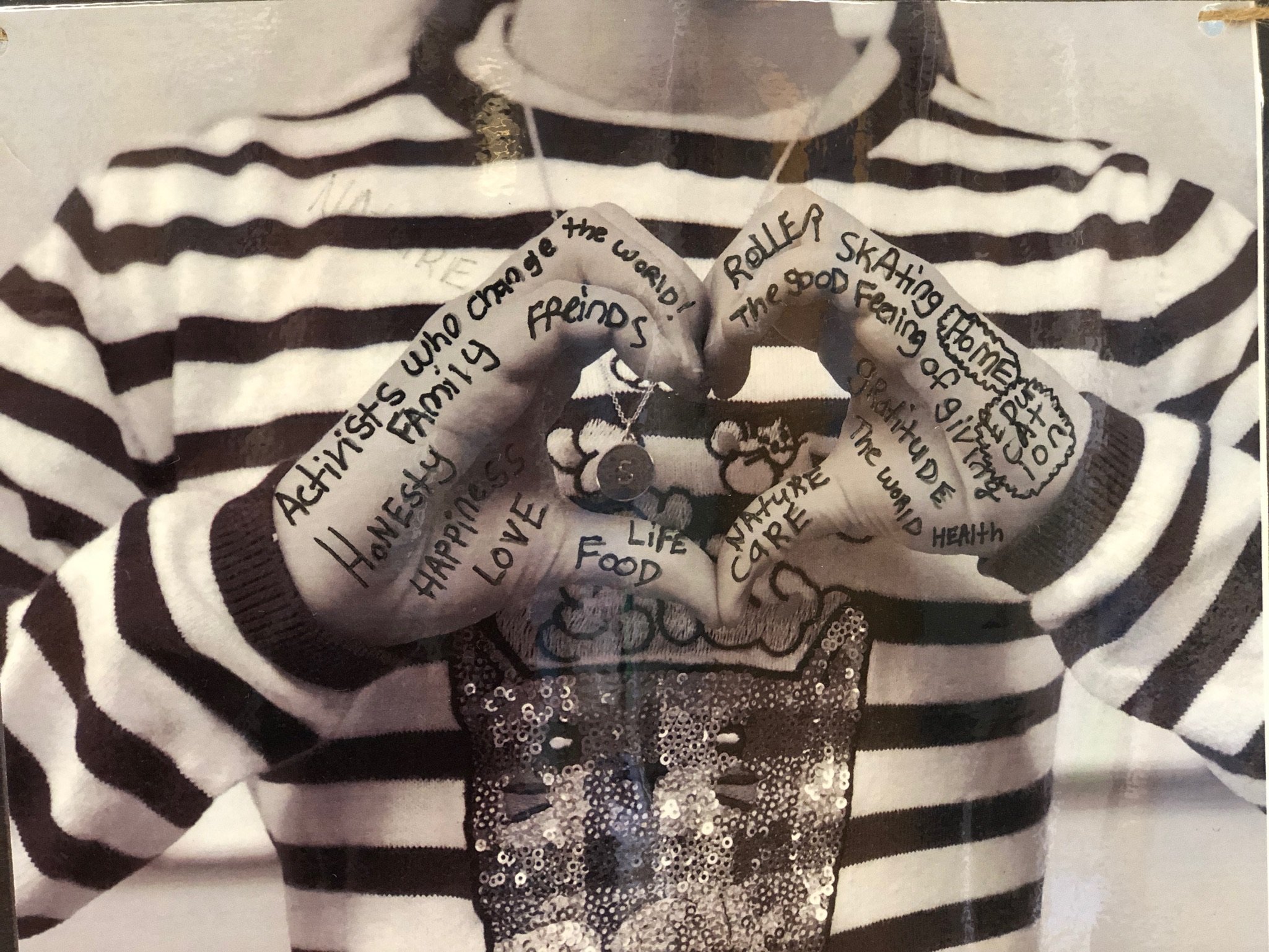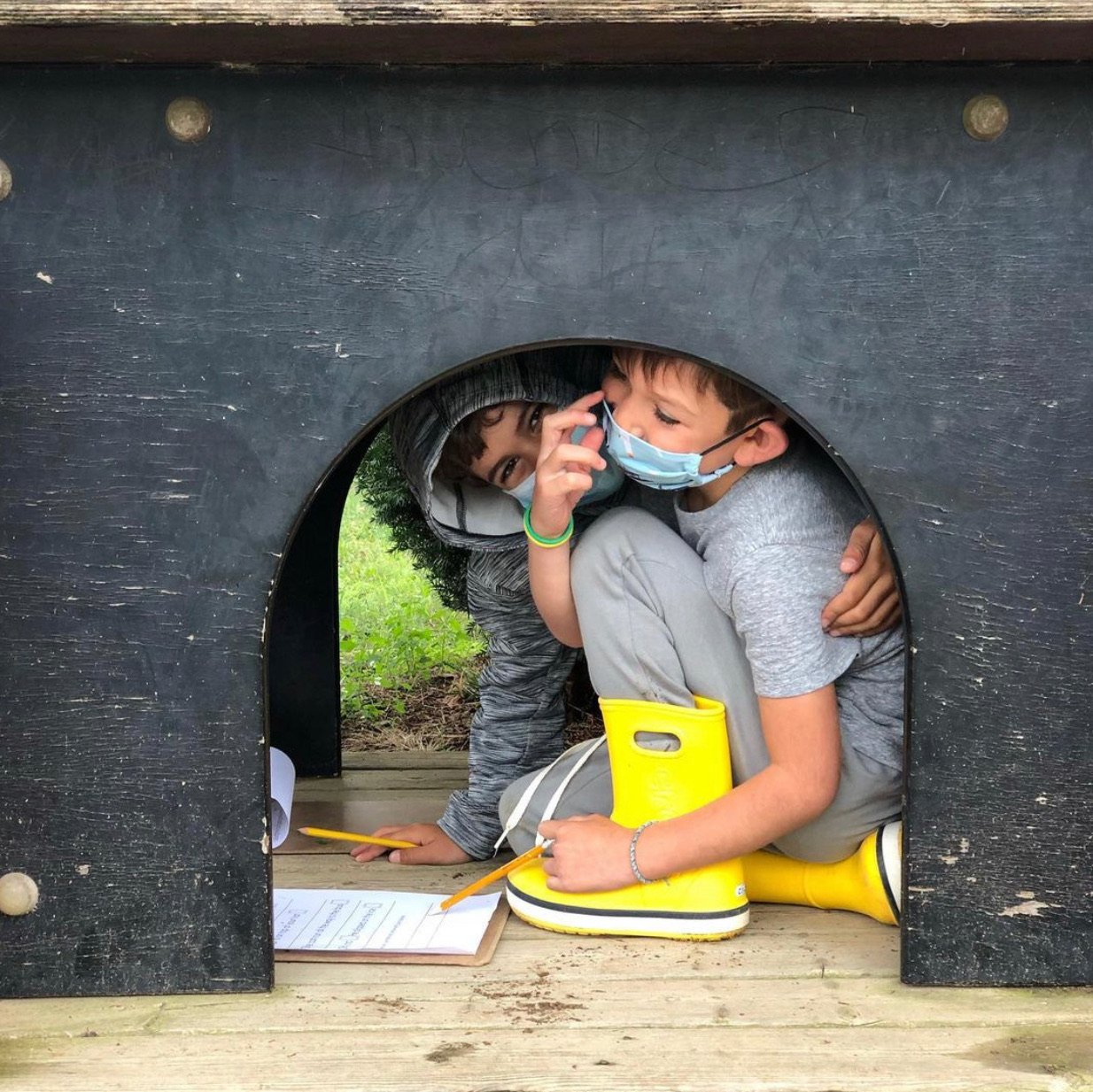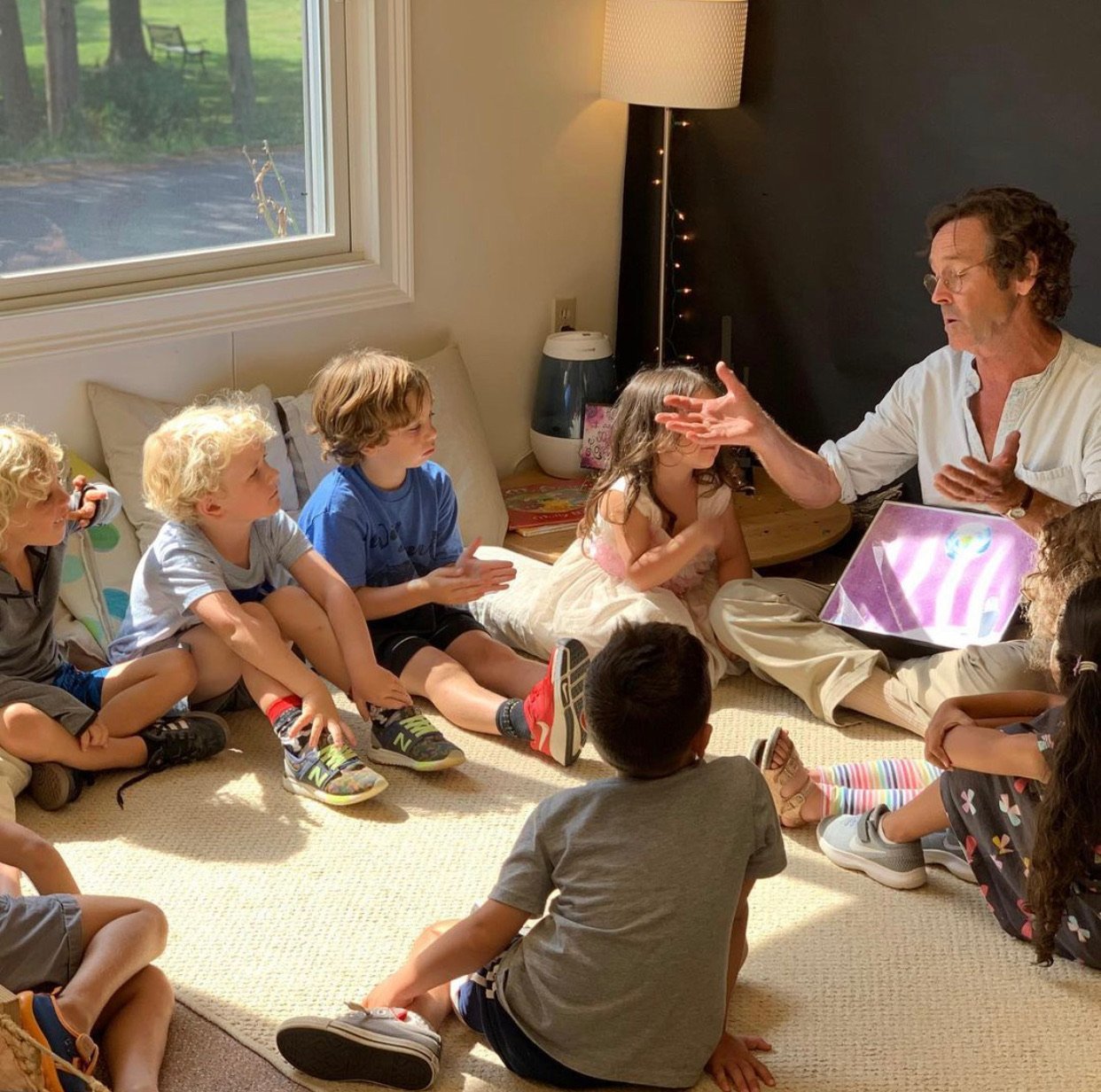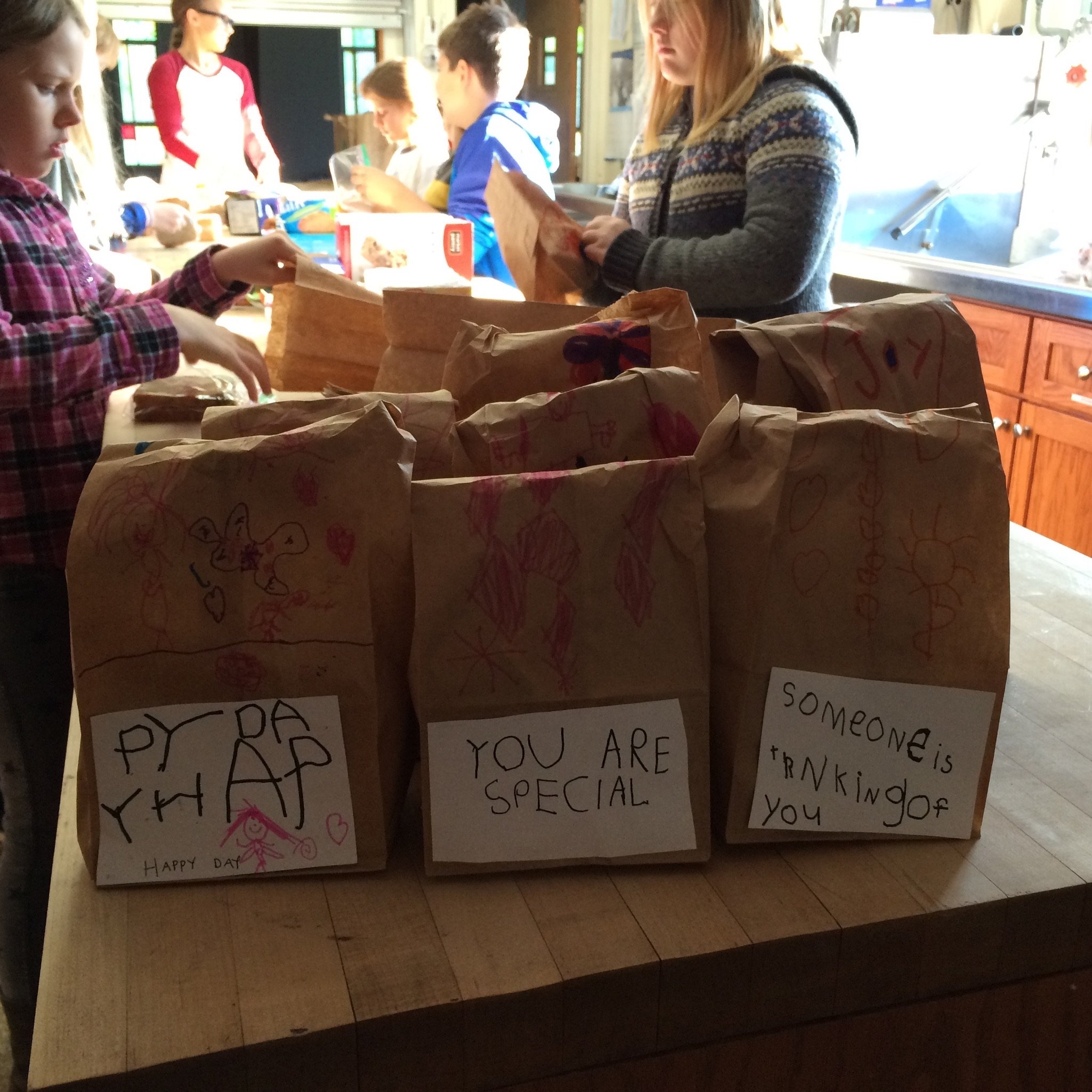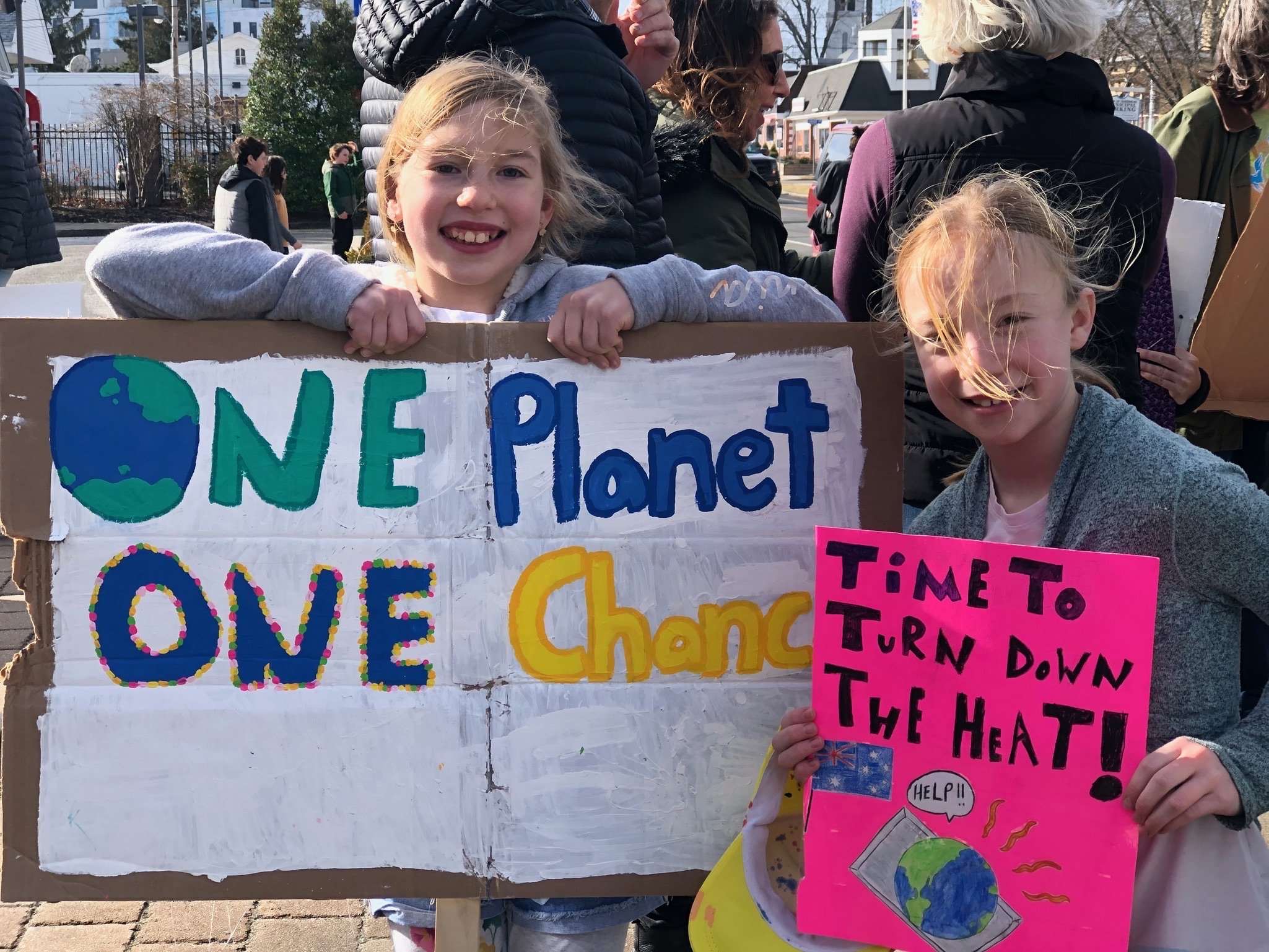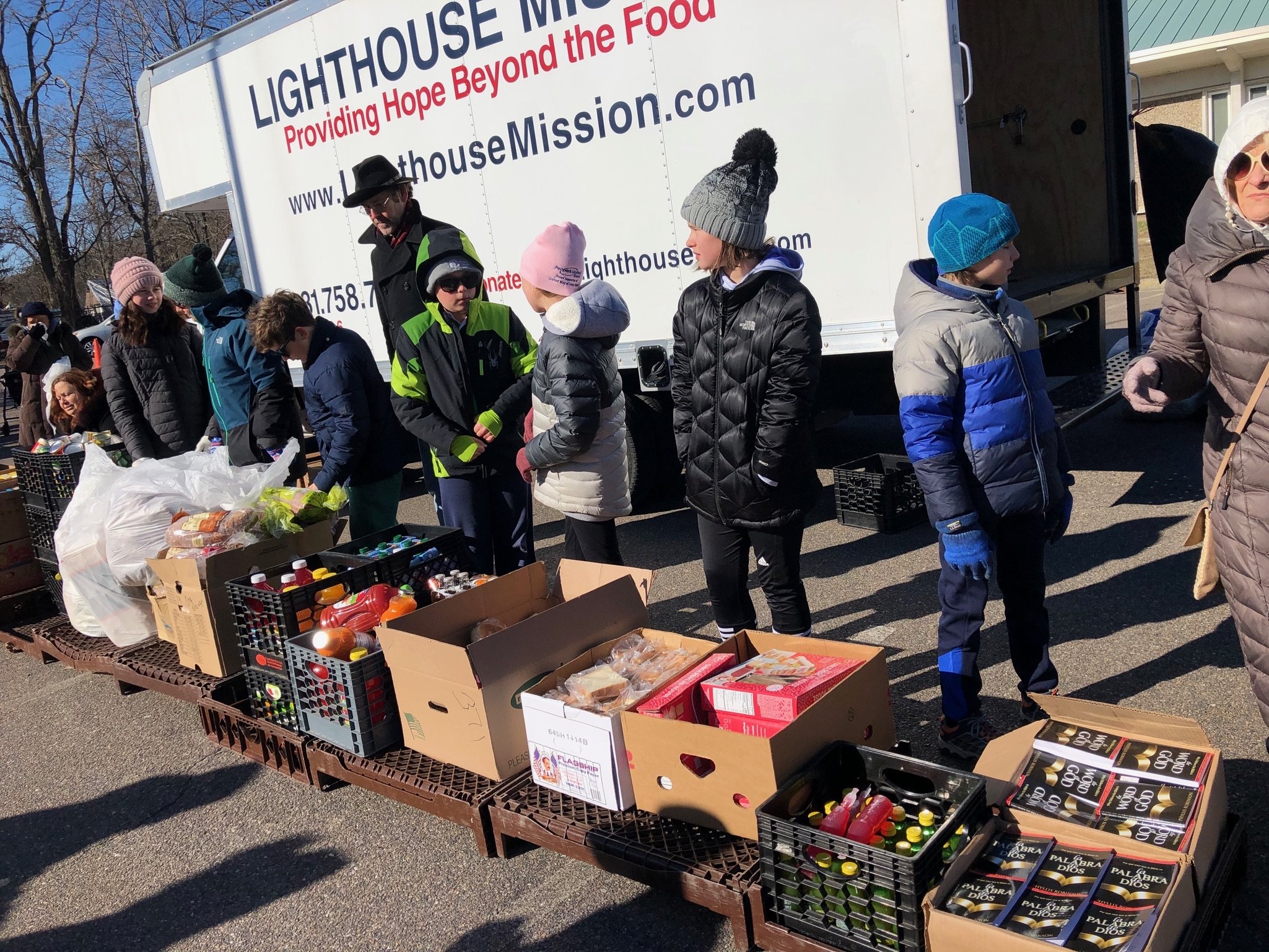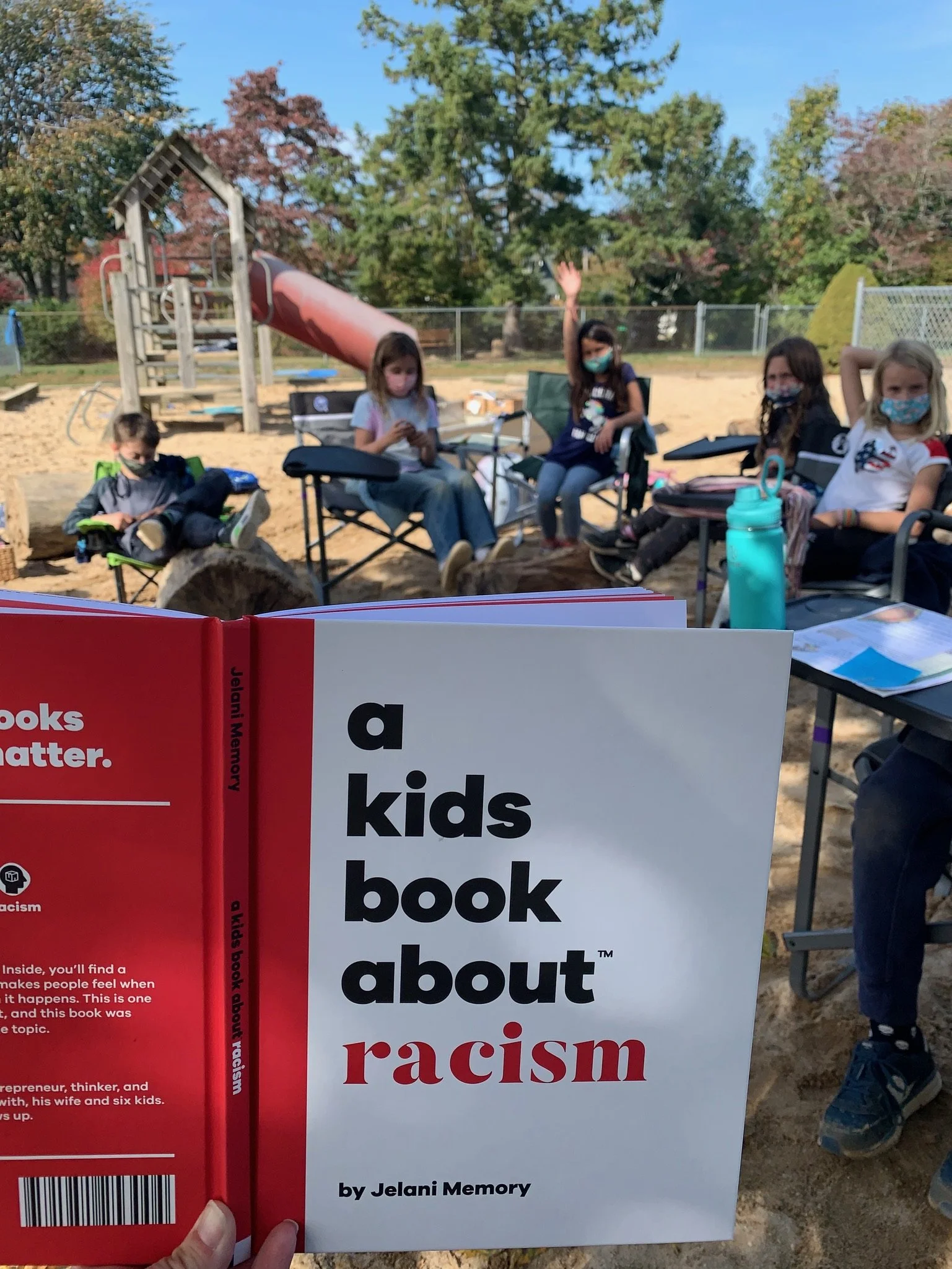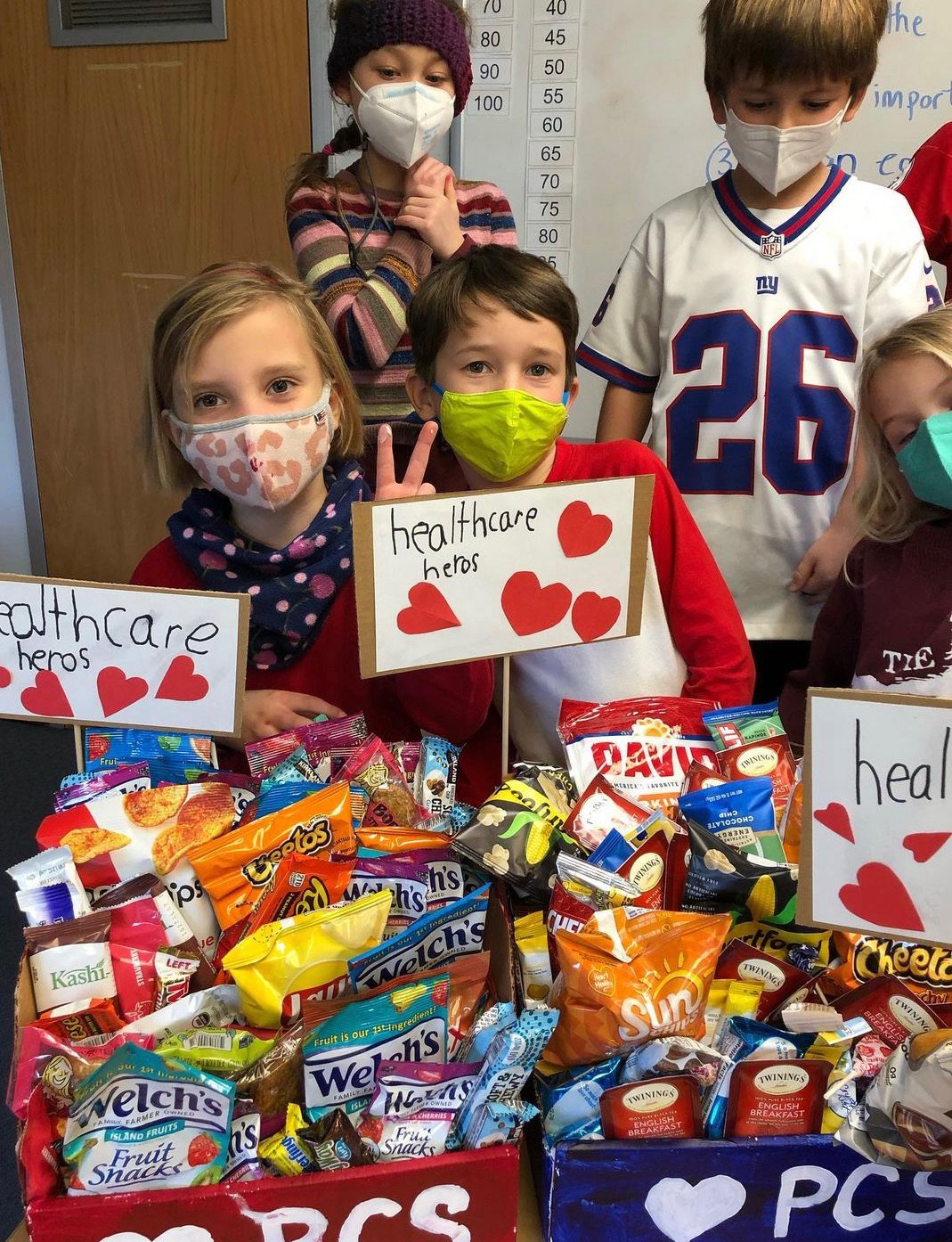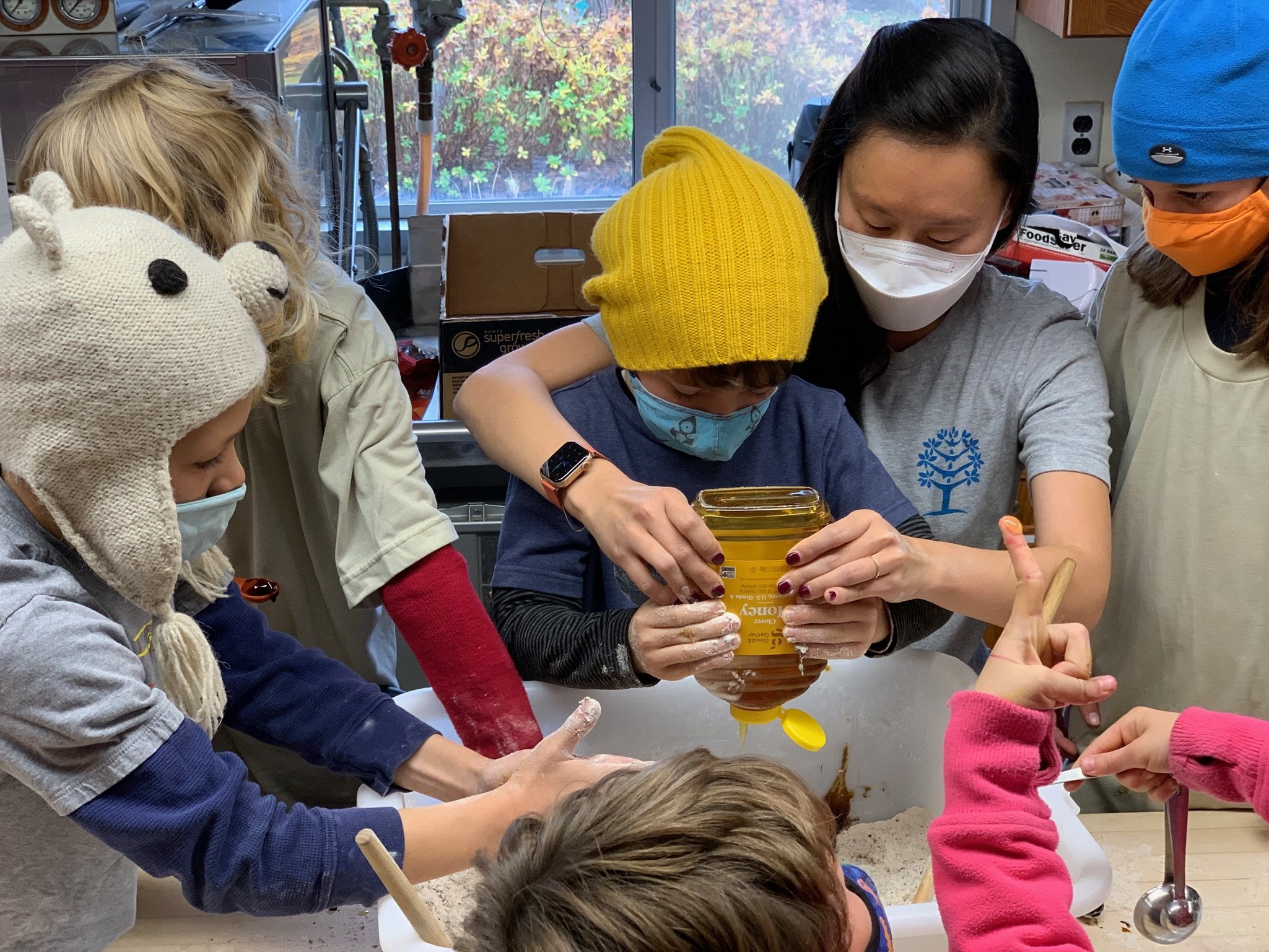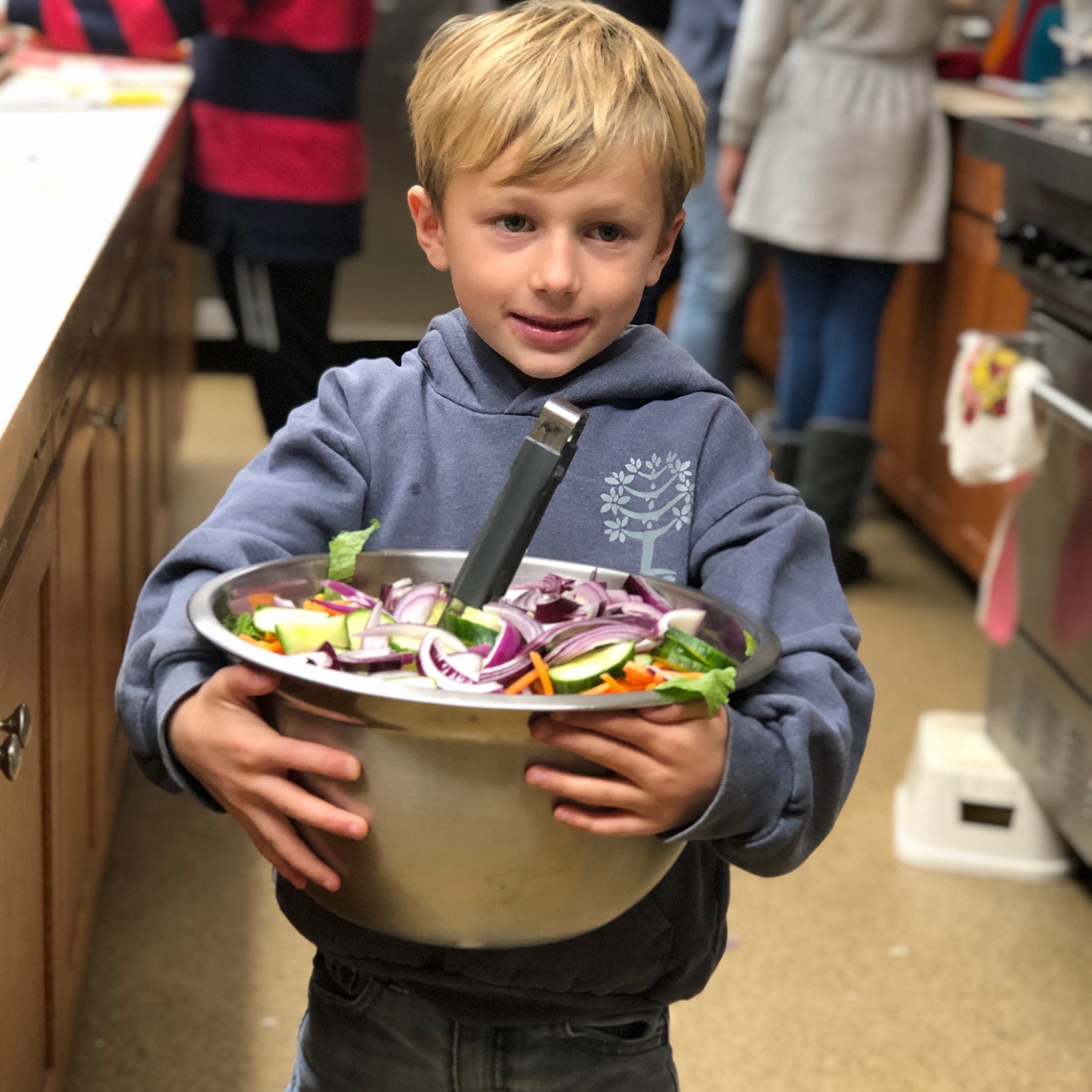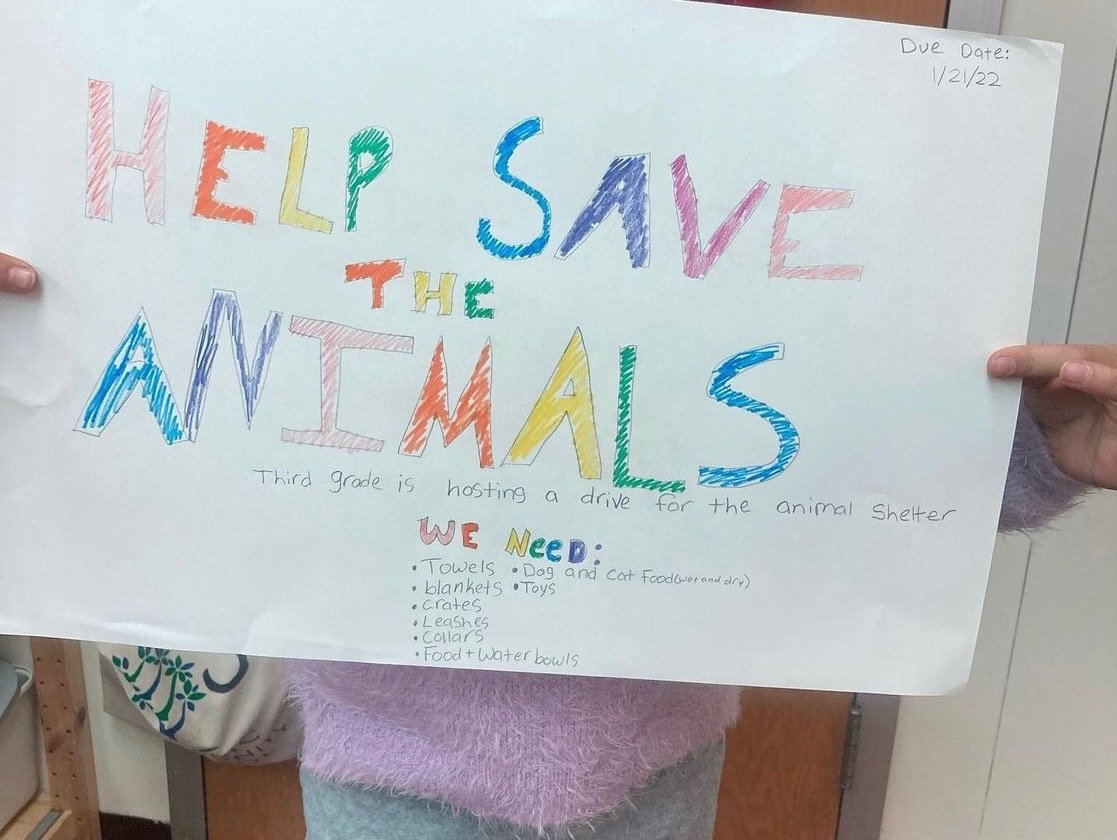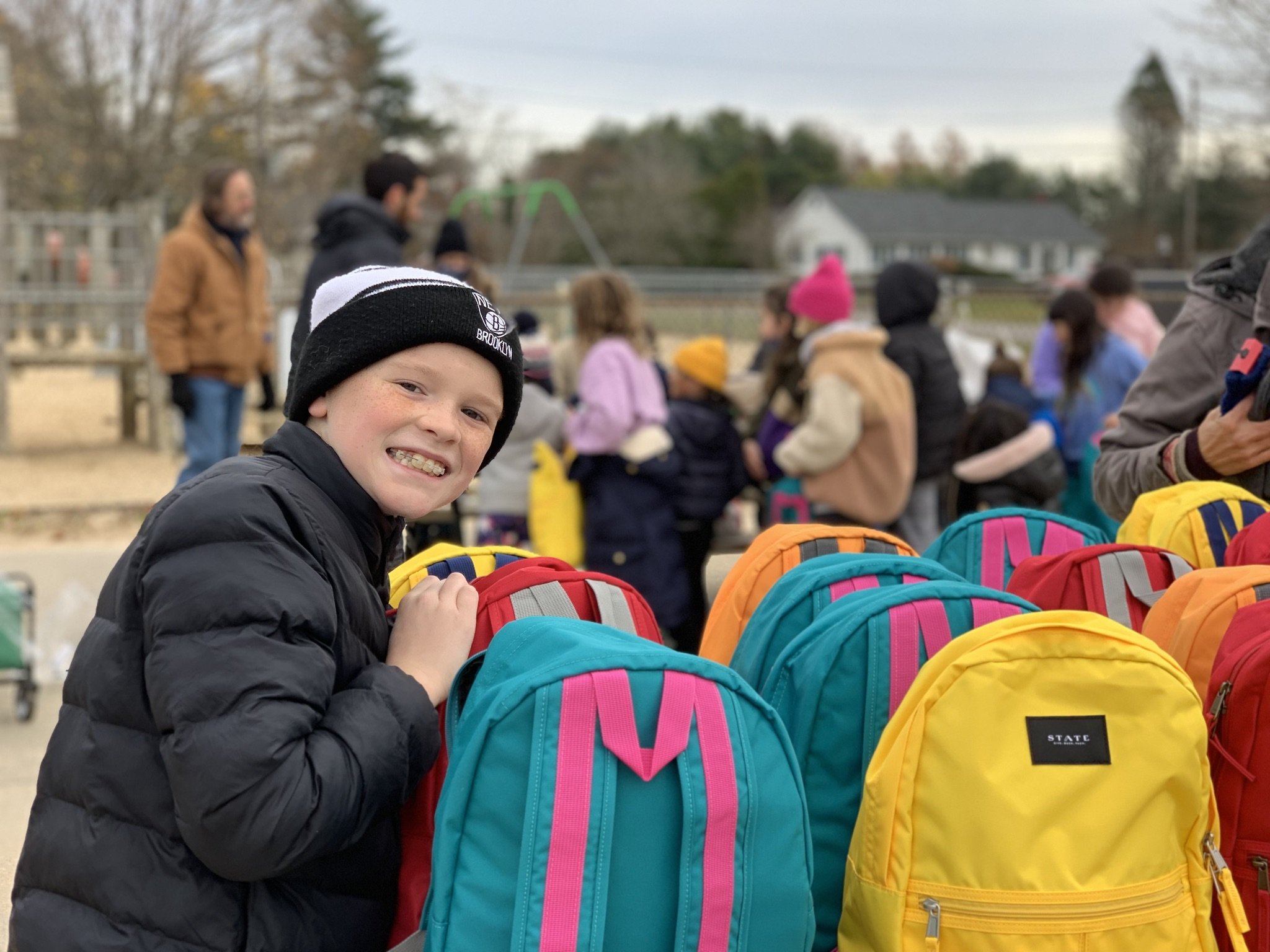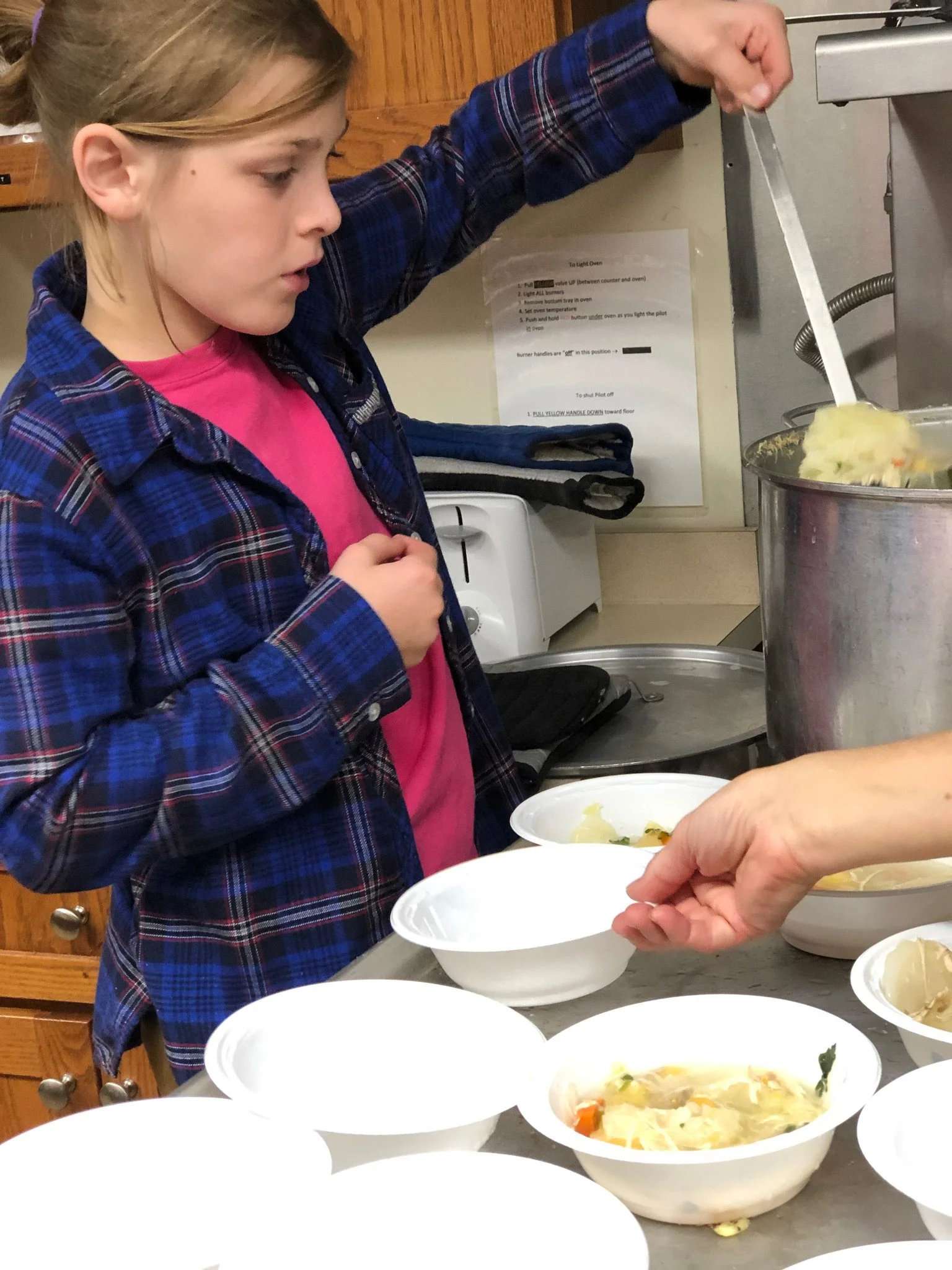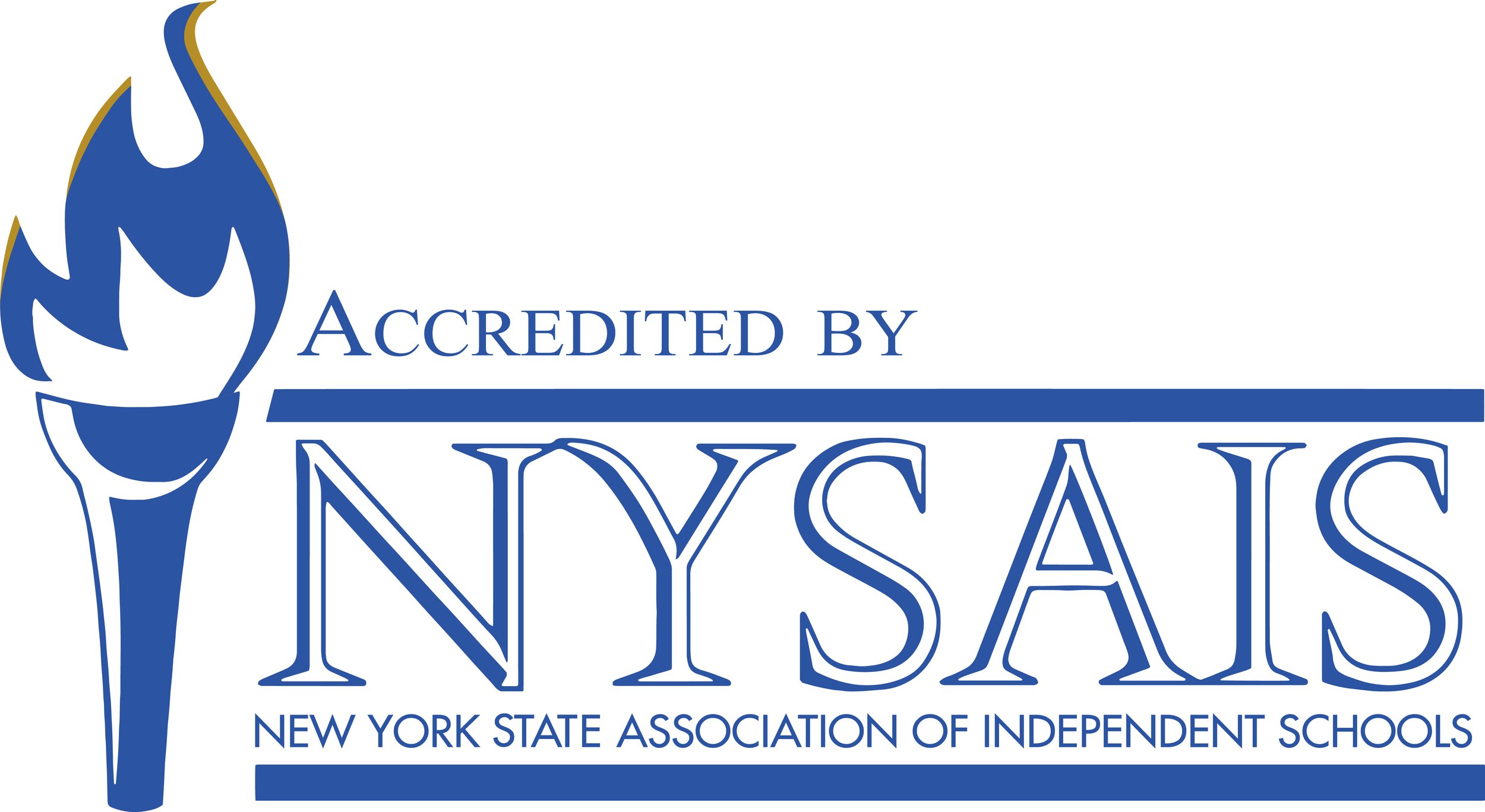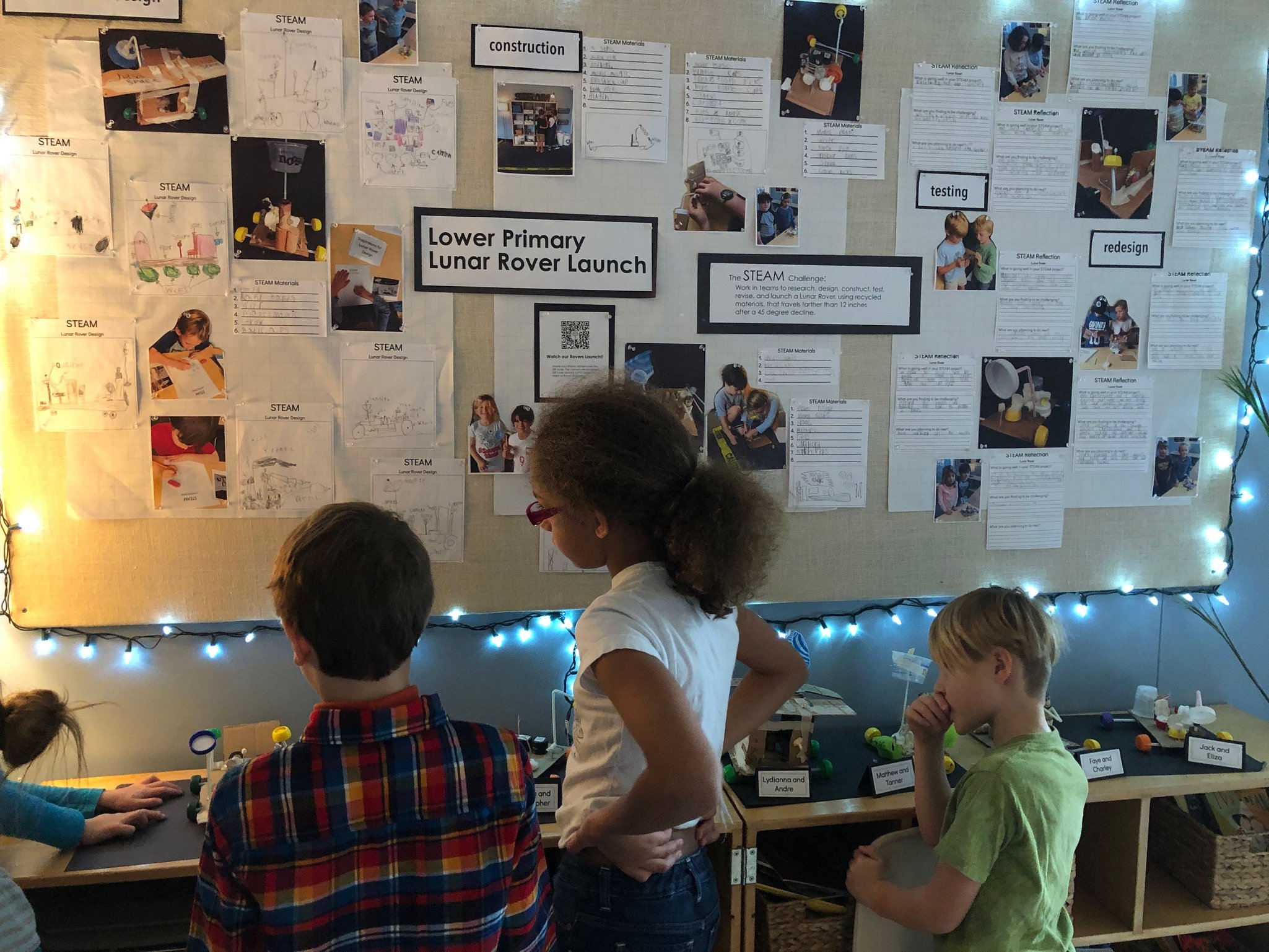
The PCS Curriculum: A Learning Journey
Project Based · Learner Centered · Community Minded · Play Based
A CORNERSTONE OF PCS CURRICULUM
The Integrated Unit
The trimester-long Integrated Studies Unit is a cornerstone of PCS curriculum. Students and facilitators spend each trimester engaged in collaborative, project-based, inquiry-driven learning that emerges from shared interests, encourages critical and creative thinking, and promotes positive change in the community. Students across all grade levels embark on a shared unit of study focused around a broad theme drawn from the fields of Science, Social Studies, Current Events and/or History. Guided by our place-based approach, inquiry is grounded in the context of Long Island’s East End. Each Integrated Unit culminates in a community-wide Celebration of Learning: a much-anticipated opportunity for students to share and showcase their project work with their peers, schoolmates, family and friends. Recent units include: Civics: Communities and Citizens in Action; Native New Yorkers; Astronomy; Humans and Technology; and Long Island’s Maritime History.
The Integrated Unit is rooted in our practice of project-based learning. Students work together over many weeks on multi-phased projects that incorporate new academic concepts and skills to solve a problem, answer a complex question or address a community need. The unit integrates elements of science, social studies, history, literacy, math and the arts in real world problem-solving scenarios: mathematicians may convert raw data to percentages to track voting and census trends; scientists may build neuron models with nuclei, dendrites and axons to demonstrate the anatomy of neuroplasticity; and writers may hone their powers of persuasion with letters urging a building moratorium to protect otter habitats.
Working together as a school on a shared topic provides opportunities for multi-age connection and collaboration — the kids love to see the different approaches to a single topic emerging on campus! Sharing an overarching topic like Astronomy lets us explore the full scope and breadth of a topic as a school (from the beginning of time and the Big Bang through to the creation of the ISS), while the classes’ more specified concentrations allow smaller groups of students to pursue lines of inquiry that are most relevant and compelling to them (one group of engineers devoted their Astronomy unit researching and testing lunar and plantetary rover designs alongside the launch of the Mars Perseverance).
While the faculty meet to choose the overarching theme of each trimester’s Integrated Unit, the specific direction of learning in each class emerges from the inquiries and interests of students as they interact with the materials. A common practice at the start of the unit is for facilitators to ask students what they already know about a topic, what they wonder, and what they would like to learn.
Field study is an important component of the Integrated Unit; classes often travel throughout Long Island and into NYC to consult with experts in the field of study, conduct authentic and original research, and access primary documents. PCS has built valuable partnerships with community groups, local government agencies, civic organizations, science foundations and arts associations, including Group for the East End, Sylvester Manor, the Watermill Center, Peconic Baykeepers, and the Suffolk County Historical Society, and we regularly collaborate with the community to amplify learning.
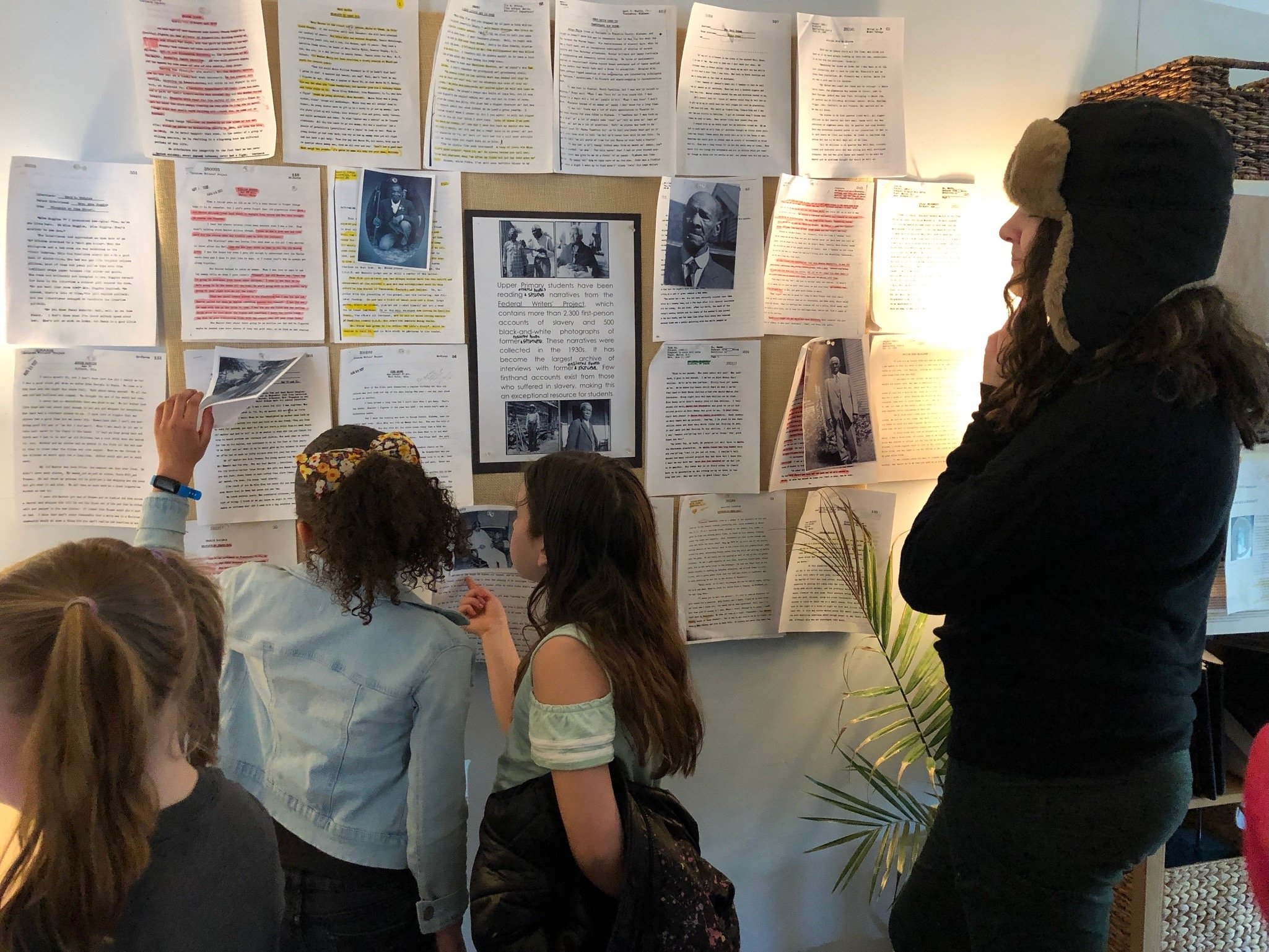
Academic Disciplines at PCS
CORE COMPETENCY INSTRUCTION AND PRACTICE
Daily Small Group Learning in Literacy and Mathematics
It’s not *all* waterfalls and rainsticks. Sometimes it’s worksheets and revisions. Yes, worksheets, skill practice, discreet instruction are absolutely part of the PCS curriculum.
In order to tackle the projects and real world problem-solving at heart of PCS integrated learning, students need to be (and deserve to feel!) confident and competent with core literacy and mathematics skills. For many students, the structured, transparent skill development and practice that happens during daily literacy and math group learning is a welcome exception to our more project-based norm — a chance to hone their skills, approach challenges directly, and see immediate results. Core literacy and mathematics competencies are tools, and students need opportunities to develop the tools they need to accomplish meaningful learning.
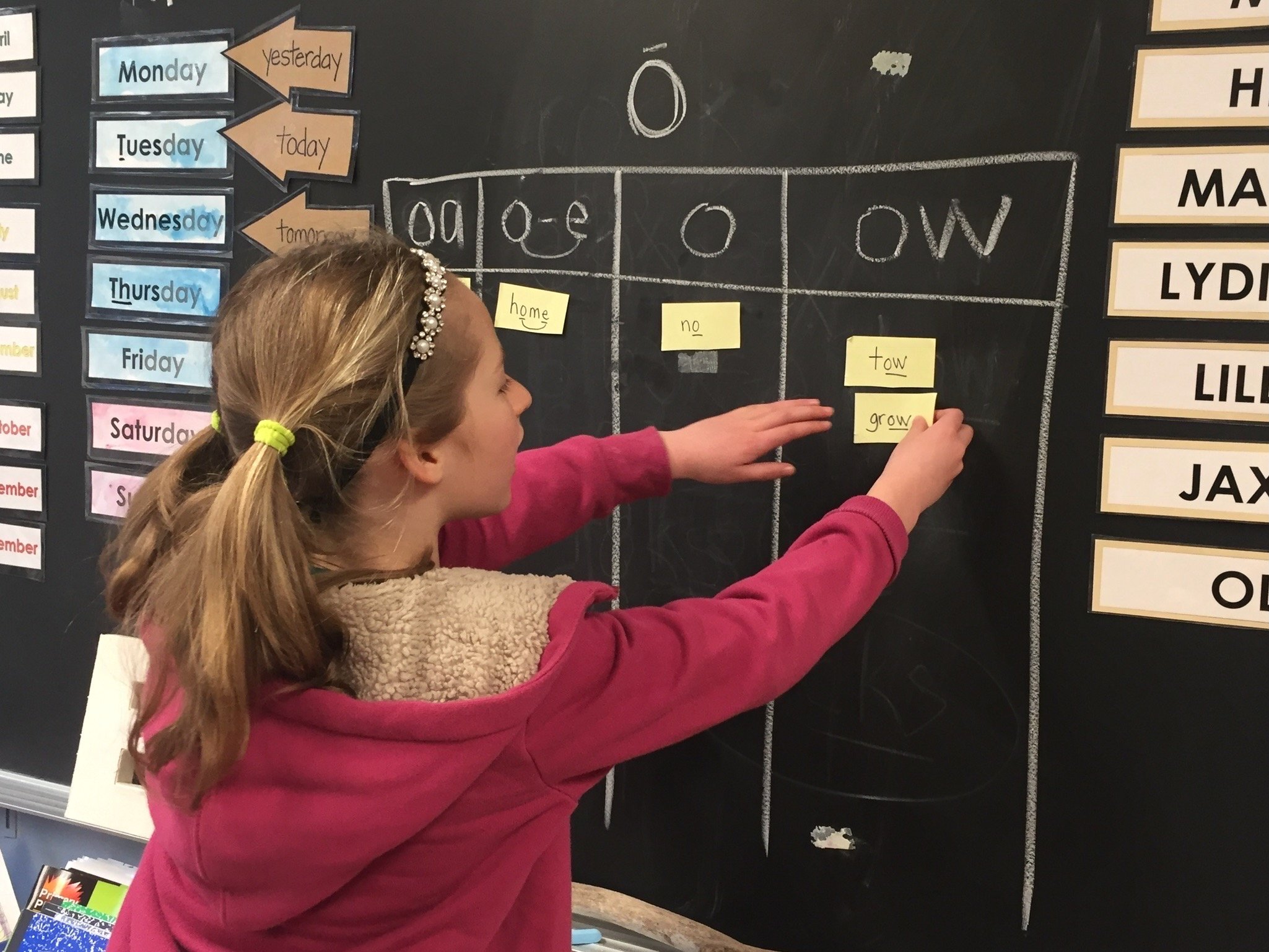
Literacy Arts at PCS
READING, WRITING, SPEAKING AND LISTENING
Literacy Arts
The literacy program at PCS aims to foster engaged readers, articulate speakers, active listeners and effective writers, skilled at finding and creating meaning from words and texts. We believe in the power and beauty of language and literature, and our foremost goal is for students to build a love of reading and to cultivate their unique voices.
Literacy curriculum covers concepts of print, language convention, reading proficiency and comprehension, literary study, writing craft and structure, word study, and the presentation of knowledge and ideas. At PCS, readers and writers are encouraged to approach their literary study with a focus on finding and making meaning, gaining knowledge, sharing thinking, and connecting emotionally.
Through guided reading groups, shared reading, sustained independent reading, and daily read alouds, students learn to read across genres, make connections to texts, infer and analyze meaning, recognize story elements, and think critically about author intent. Literature for shared and guided reading often integrates with the thematic unit and is chosen with careful attention to representing a diversity of genres, forms, perspectives, and authors. Students make their own independent reading selections.
Facilitators provide writing opportunities that offer exposure and practice with different genres, topics, forms and purposes. Writers work to express their thoughts and ideas with clarity and organization; to move through the writing process of planning, drafting, revising and editing; to support their ideas with evidence and examples, and to use compelling language to engage readers.
Public speaking is a crucial part of education at PCS, and students work to hone their expressive language skills: organizing their thoughts logically, conveying their ideas clearly, and choosing language that amplifies their message and resonates with their audience. Students have a variety of opportunities to practice oration in the classroom, during weekly all school Community Meetings, at the Celebrations of Learning, as well as in the wider community.
* Literacy curriculum at PCS aligns with Next Generation Learning Standards, and facilitators implement nationally recognized teaching tools and resources to support sequencing, lesson planning, and skill development. Resources vary from year to year, reflecting the needs of individual learners and current best practice.

Mathematics at PCS
BALANCED MATH: CONCEPTS AND COMPUTATION
Mathematics at PCS
Through their math study, we want children to think deeply about mathematical relationships, develop strategies to solve problems, establish strong number sense, and apply math as a practical tool for discovering and understanding the world.
The mathematics program at PCS incorporates explicit whole-class instruction, daily small group work, independent skill practice, and inquiry based explorations woven through the thematic Integrated Unit to foster conceptual mathematical understanding and develop skill facility and fluency.
PCS uses a balanced mathematics framework to integrate conceptual understanding, traditional algorithms and computation, learner inquiry and project based learning. During structured math blocks, students engage with mathematical ideas across five strands of mathematics (counting and cardinality, number sense and base ten operations, algebraic thinking, measurement and data, and geometry), and formalize these concepts with skill and strategy practice utilizing games, numeracy routines, and problem solving. Incorporating tactile manipulatives (blocks, counters, dominos, cubes, base-ten units, and later, place value holders in computation) reinforces the connection between value and numeric representation for PCS’s younger mathematicians.
Mathematics work during the thematic Integrated Unit is focused on student-led projects and encourages logical reasoning and flexible mathematic thinking while providing meaningful context and opportunities for real-world application. Mathematicians in the Lower School may graph daily temperatures to know when to build turtle hibernation dens on campus; they may chart changes in white tailed deer populations across the US; or they may experiment with ratios and proportions to build a scale model Brooklyn Bridge; and mathematicians in the Middle School may use their knowledge of statistics to understand the allocation and distribution of Electoral College votes — all of these practices forge vital connections between abstract computations and the real values they represent and make math meaningful.
*PCS math curriculum aligns with Next Generation Learning Standards, and facilitators implement nationally recognized teaching tools and resources to support sequencing, lesson planning, and skill development. Resources vary from year to year, reflecting the needs of individual learners and current best practice.
MANIPULATIVES MAKE LEARNING VISIBLE FOR YOUNG MATHEMATICIANS
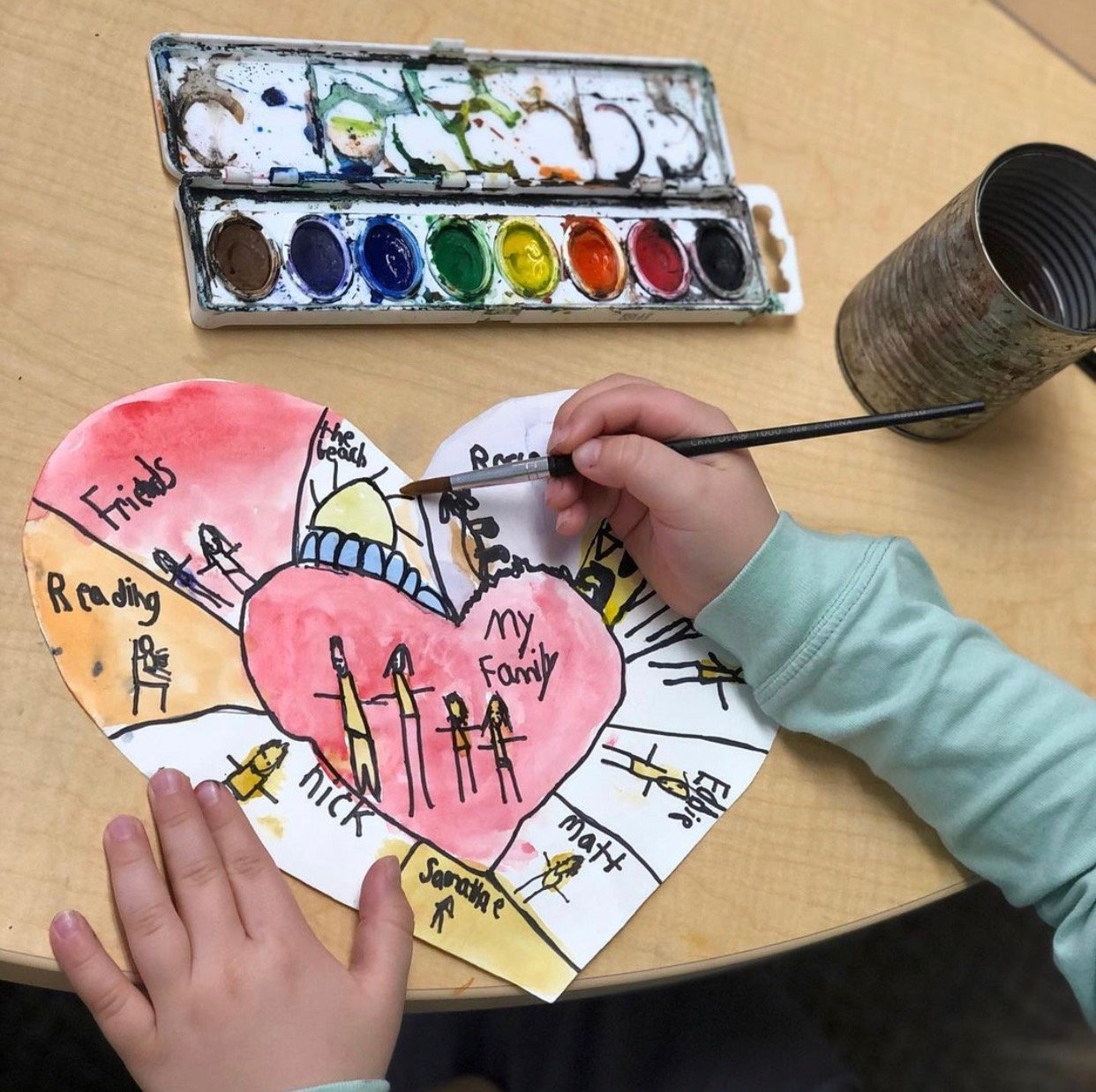
Enrichment Areas
ART · MUSIC · SPANISH · WELLNESS
ART, MUSIC, SPANISH AND WELLNESS
Enrichment Areas
Each week students in all classes participate in Art, Music, Spanish and Wellness classes facilitated by dedicated instructors. Curriculum combines domain -specific introductions to the culture, traditions, history and practices of each enrichment area, as well as applicable integrations with the theme of the Integrated Unit.
Art
The PCS art program emphasizes the value of the artistic process and aims to develop students’ confidence in their creativity. While the program offers a strong foundation in art history, culture, principles and technique, students are encouraged to experiment, make choices, and take risks to discover their own artistic vision.
Music
Music instruction at PCS spans repertoire, musical elements, history and culture, composition, and performance. Early Childhood and Kindergarten classes reflect the way children learn at this age: incorporating movement, play and voice to explore rhythm and beat. Primary music instruction includes both whole-class repertoire and ensemble work, as well as small group lessons with string and wind instruments.
Spanish
At PCS students begin learning Spanish in Early Childhood and continue through grade 8. The Spanish program is immersive and explorative with all classes conducted entirely in Spanish, emphasizing vocabulary in context and an intuitive understanding of patterns and sound.
Wellness
The Wellness program aims to nourish children with attention to overall physical, emotional and cognitive well-being, as well as the interdependent mind-body relationship. Instruction encompasses movement, strength training, mindfulness, cardiovascular activity and introductions to traditional team sports including soccer, football, and basketball, with an emphasis on sportsmanship and team-building.
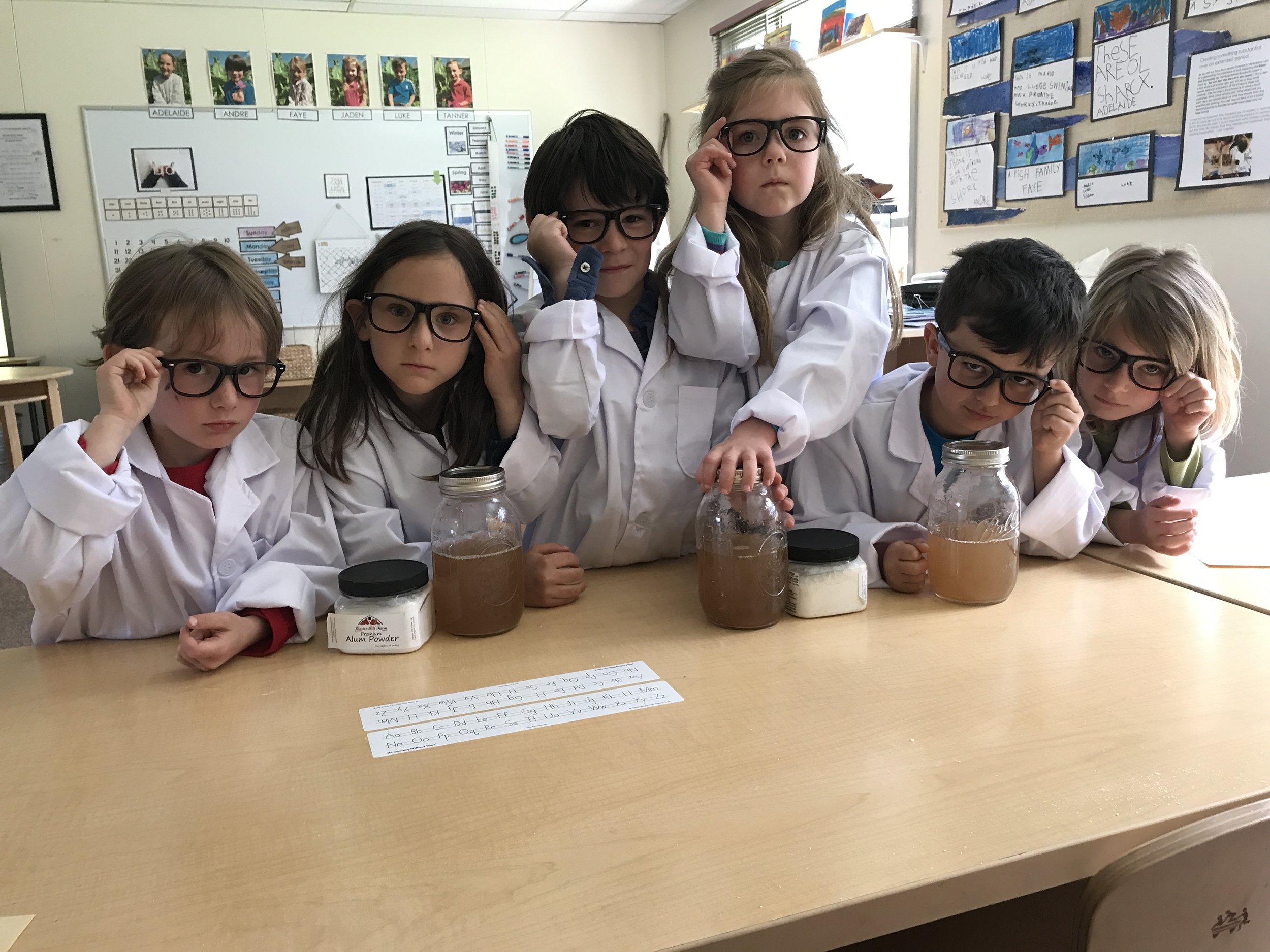
Project Based Learning
TEACHING AND LEARNING AT PCS
Project Based Learning
Project-based learning at PCS is a meaningful approach to authentic learning that confronts students with challenging problems, intriguing questions and complex, multi-sided issues related to the theme of our school-wide, trimester-long Integrated Unit of Study. Over the course of each ten- to twelve-week trimester, students and facilitators work together to propose lines of inquiry inspired by student interest, pursue research opportunities, and design interdisciplinary projects that develop deep subject knowledge and engage critical and creative thinking skills, as they craft solutions to the posed problems and issues. When student projects tackle real problems and address actual community concerns, project-based learning helps students build knowledge and insight, not just models.
The project based learning that happens at PCS is hands-on, collaborative, research-based and reflective, connecting student choice and voice with key academic concepts and skills within a framework of real-world activities that makes learning relevant and memorable. Student researchers often venture out into the field to find local experts, consult primary sources and collect first-hand data. In the classroom, students learn to work with design cycles to plan, organize, manage, execute and evaluate projects. Working together on long-term projects, students learn true collaboration: incorporating their individual voices and skills into a shared project that also honors the contributions of others. Reflection plays a crucial role in project-based learning at PCS; students are learning to think not only about what they are learning, but how they are learning, so they can recognize and summon these strengths throughout the course of their learning journeys. As the Integrated Unit unfolds, students utilize multiple media (journals, sketchbooks, research logs, video, artwork, notes and photos) to document the evolution of their thinking, share their learning with their peers and create their own authentic assessments.
Whether students successfully petition their local town board for Turtle Crossing street signs on roads near waterways, or create fully-immersive, multimedia reenactments of the Big Bang to teach their younger schoolmates about the birth of the Universe, or design their own superheroes using current bionic and cybernetic technology to illustrate the positive intersections of Humans and Technology, the project-based learning that happens at PCS is deeply memorable and meaningful because it answers directly to kids. It is learning that matters.
Lower Primary Astronomy Study Fall 2018: See more.
ELEMENTS OF PROJECT BASED LEARNING:
Challenging Problem/Question · Student Voice and Choice · Sustained Inquiry · Collaboration · Design/Innovation · Reflection · Documentation
A Framework for High Quality Project Based learning: https://hqpbl.org.
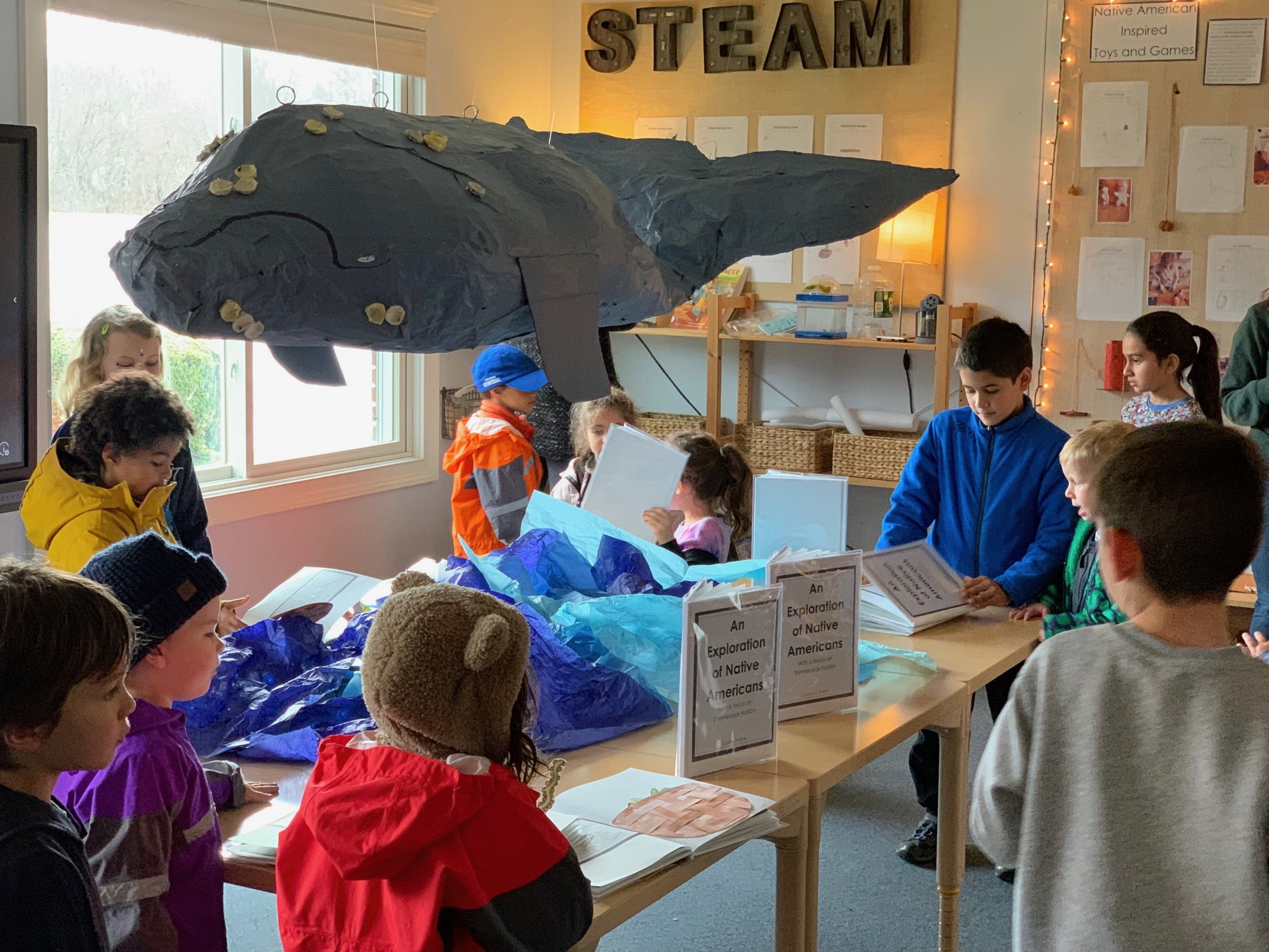
Learner Centered Education
CHILDREN ARE THE HEART OF LEARNING
Learner Centered Education
Children are the heart of learning at PCS, and our curriculum is dedicated to nourishing the whole child, with attention to building strong bodies, honing sharp minds and honoring free spirits. When we know and honor each child individually, developmentally and culturally, we build the foundation for a connected and inspired community of learning.
The learning spaces, routines and practices at PCS are thoughtfully structured to align with the strengths and needs of our students and create a safe and joyful environment where each and every student feels valued, supported and heard. Student voice and choice are integral to building trust and community, and students are a part of everything that happens at PCS. From hanging their original work on the walls and writing their own Classroom Agreements, to addressing community concerns in Morning Meetings, identifying their pronouns, and drafting their own learning goals: students know right from the start that school is a place where their ideas are important, where their identities are valued and where learning answers to them.
Our shared Community Values (including collaboration, empathy, compassion and perseverance) form the foundation for community building at PCS; students integrate the values into their daily collaborative learning, and we work more explicitly to offer children the opportunity to practice relational, social-emotional, and life skills within the safety of our school community. Learning to put on our own rainsuits, learning to apply sunscreen, learning to communicate online, learning to repair a hurt we’ve caused, or to disagree without losing a friend, to express anger, to make amends, to help a friend in need, to listen to a new idea, to find our voice when we feel scared, to ask for help when we need it – these are all skills that help us grow into better citizens and build stronger communities, and they are skills that we think are just as important as learning to read and write.
Young learners are on the precipice of giant leaps in understanding, perspective and experience, and in order to help these pioneers blaze their own paths, we need to help them feel safe, secure and supported in the face of their widening world.
Learn more about intentional learning design from Responsive Classroom.
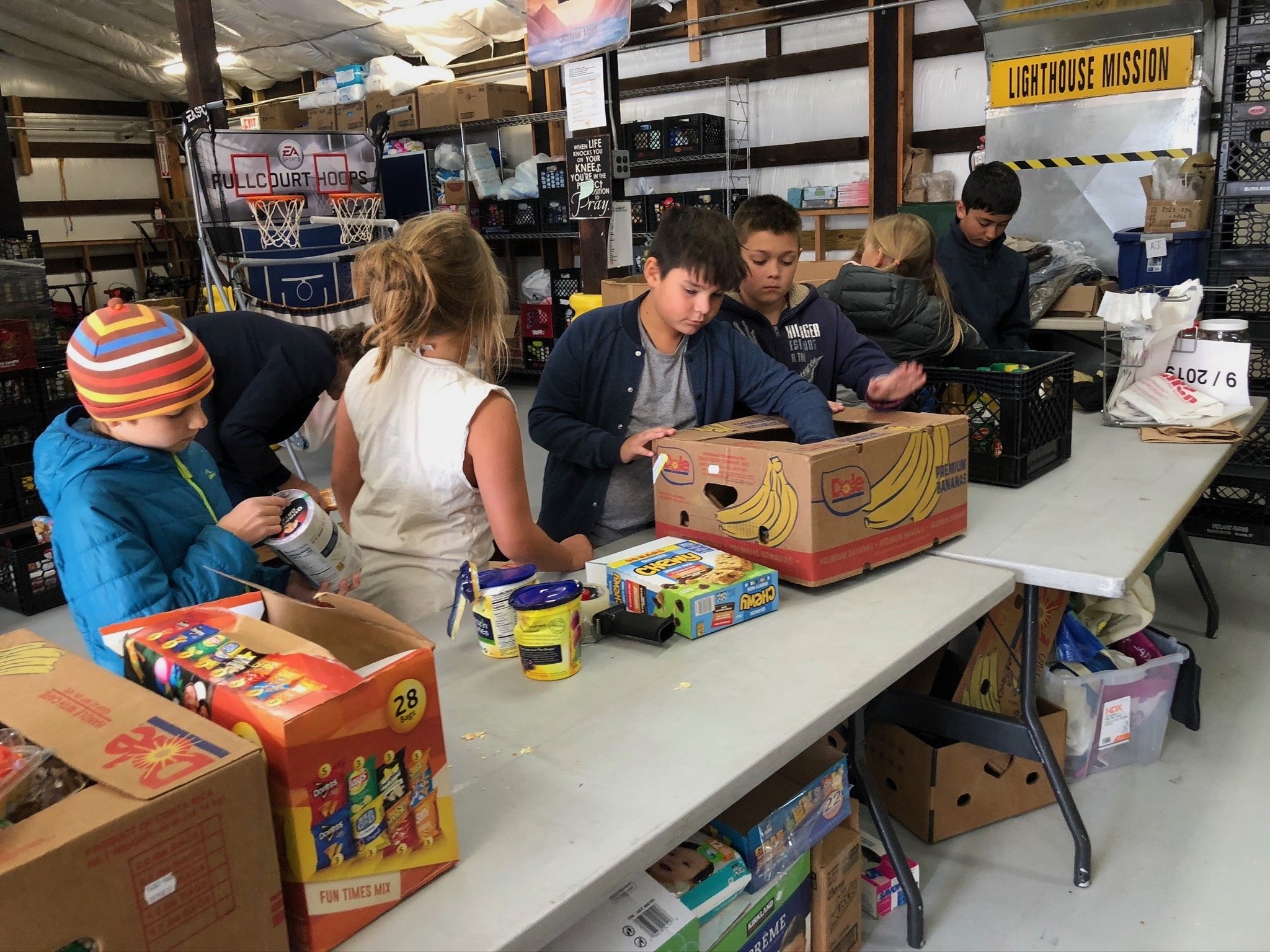
Community Minded Education
COMMUNITY ACTION AT PCS
Service Learning and Social Justice
The community action, service learning, and social justice initiatives at PCS are integral parts of our curriculum that support students’ ability to enact meaningful, positive and compassionate change in their communities – not later, not when they grow-up – but today, and everyday.
The service learning/community action program aims to immerse students in hands-on, interactive, field-based service learning experiences that meet authentic needs in the community *and* connect students to the realities of underserved populations in our community, so they can begin to understand the societal structures that stress and challenge vulnerable populations. When students begin to problem solve about how they can make positive change in people’s lives and how they can institute change in the community, community service becomes community action.
Students across all grade levels participate in hands-on service learning and community action projects throughout the year (including an annual Day-On of Service in honor of Martin Luther King Jr. Day), often in cooperation with community outreach groups including Maureen’s Haven, Branches of Long Island, Lighthouse Mission, Slow Food East End Flour Power, and Amseas to address housing insecurity, food scarcity, marine habitat pollution and the climate crisis. Students regularly set up overnight shelters, and make and serve dinner to the guests; they stock food pantries, serve at mobile food drives, create necessity bags for families in temporary housing, clear marine debris from local beaches, and one student even rallied over 100 community members to a climate march she organized in downtown Riverhead!
PCS is an actively anti-racist community. Part of our responsibility as anti-racist educators is making sure that anti-bias work and materials that honestly and responsibily address the realities of racism are incorporated into our daily curriculum. Many opportunities to discuss systemic racism and individual bias present themselves authentically, whether we’re considering recent news stories, recounting personal experiences, uncovering themes in our integrated unit, or discovering historical inaccuracies or mistruths in our research. Facilitators prepare for these authentic opportunities, extend learning whenever possible, and hold safe space for honest student inquiry to emerge. Additionally, some our our anti-racist work is explicit, intentional and prioritized into the daily schedule alongside math groups and integrated unit blocks. Students are offered dedicated time and safe spaces to work through their questions about racism, process their lived experiences, confront new perspectives, and practice new responses.
BE THE CHANGE.
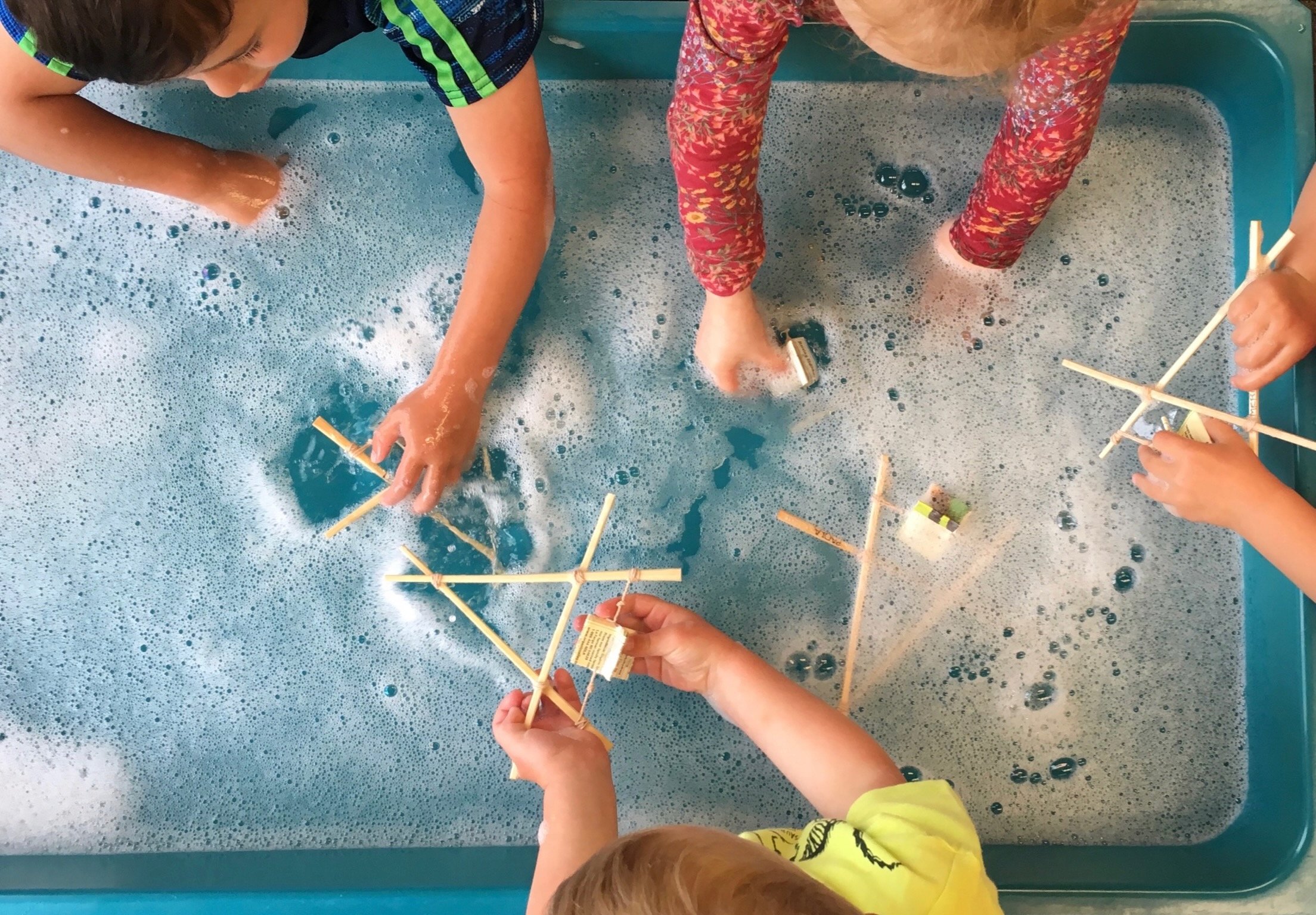
Play Based Learning
MAKING SPACE FOR LEARNING TO BE JOYFUL
Play Based Learning
The Early Childhood and Kindergarten programs at PCS offer hands-on, child-centered learning experiences in an idyllic natural landscape. Children are encouraged to wander and wonder, to play and pretend, to experiment and experience. The EC and K programs are based primarily outdoors. We take full advantage of the many environs our Eastern campus offers, and embrace all kinds of weather. The children love the mud play, puddle-splashing, river-building, and sledding that "bad" weather brings, and good boots, a rain suit, mittens and hat are must-haves.
Offering kids dedicated time to play — outside, everyday, with loose parts, open-ended materials, and no agenda — opens up space for children to direct their own learning. Kids are innately curious, inquisitive, capable and wonder-full. As we continue to hold space for their explorations and support extensions of their learning, we see more and more complex and extended inquiries unfold. Elaborate imaginative villages arise and evolve over the school week; experiments with force and motion turn into simple (and not so simple) machines that test the limits of gravity and inertia; and chance discoveries outdoors (footprints in the snow, a praying mantis in the garden) often lead to trimester-long observations and research-based inquiries.
There are so many benefits to child-directed play: developments in critical thinking, problem solving, motor skills, collaboration, creative thinking, empathy, executive function, organization, conflict management, emotional regulation, academic gains … the list goes on and on. But, for us, the greatest benefit of play-based learning is that this is where children come to know that learning can (and should!) be fun! When we send the message to kids that their joy matters — that we care about what they care about, that school is a place for their questions and their wonderings and their explorations — then we lay the foundation for a lifetime of child-led, joyful, wonder-full learning.
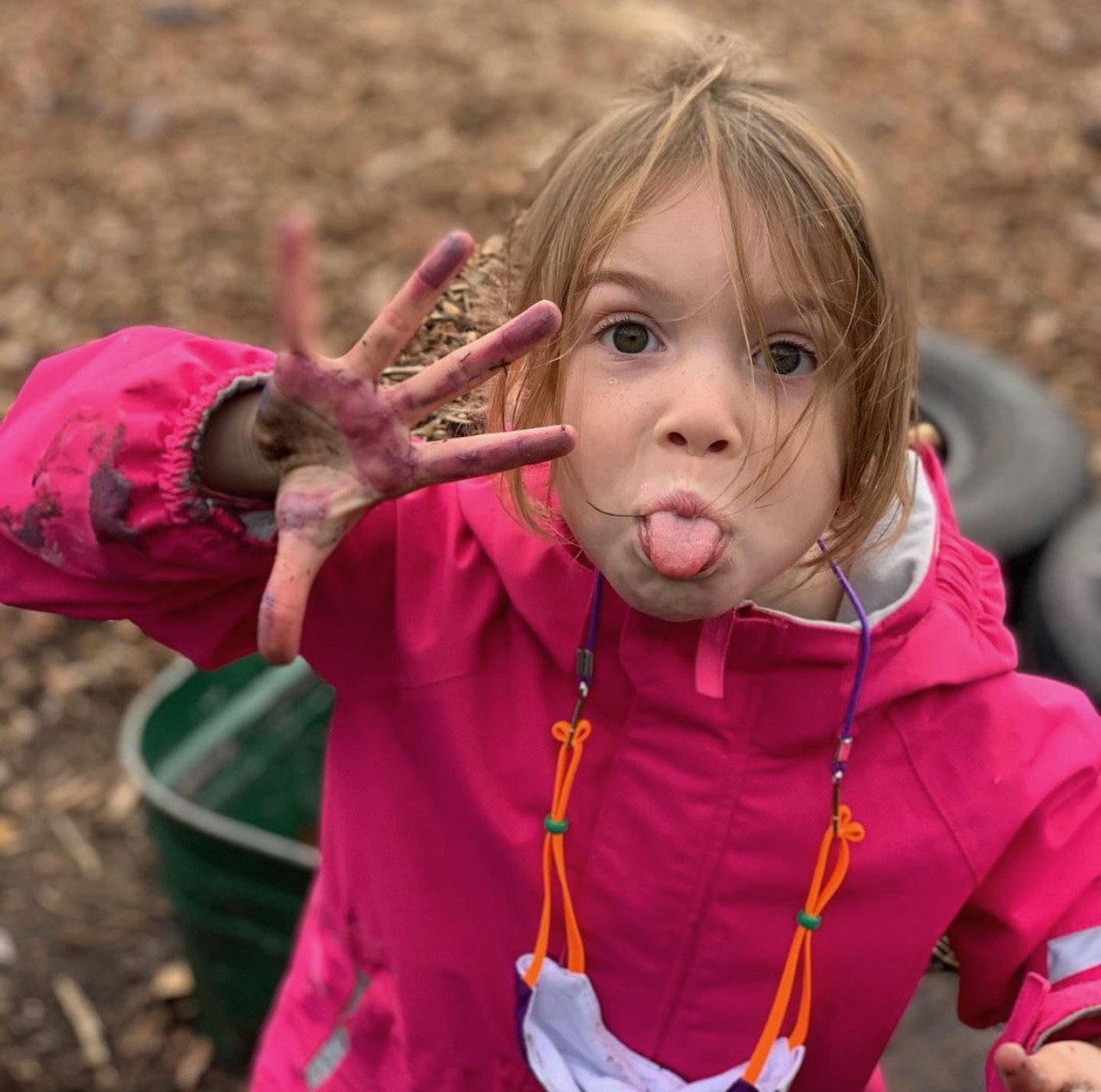
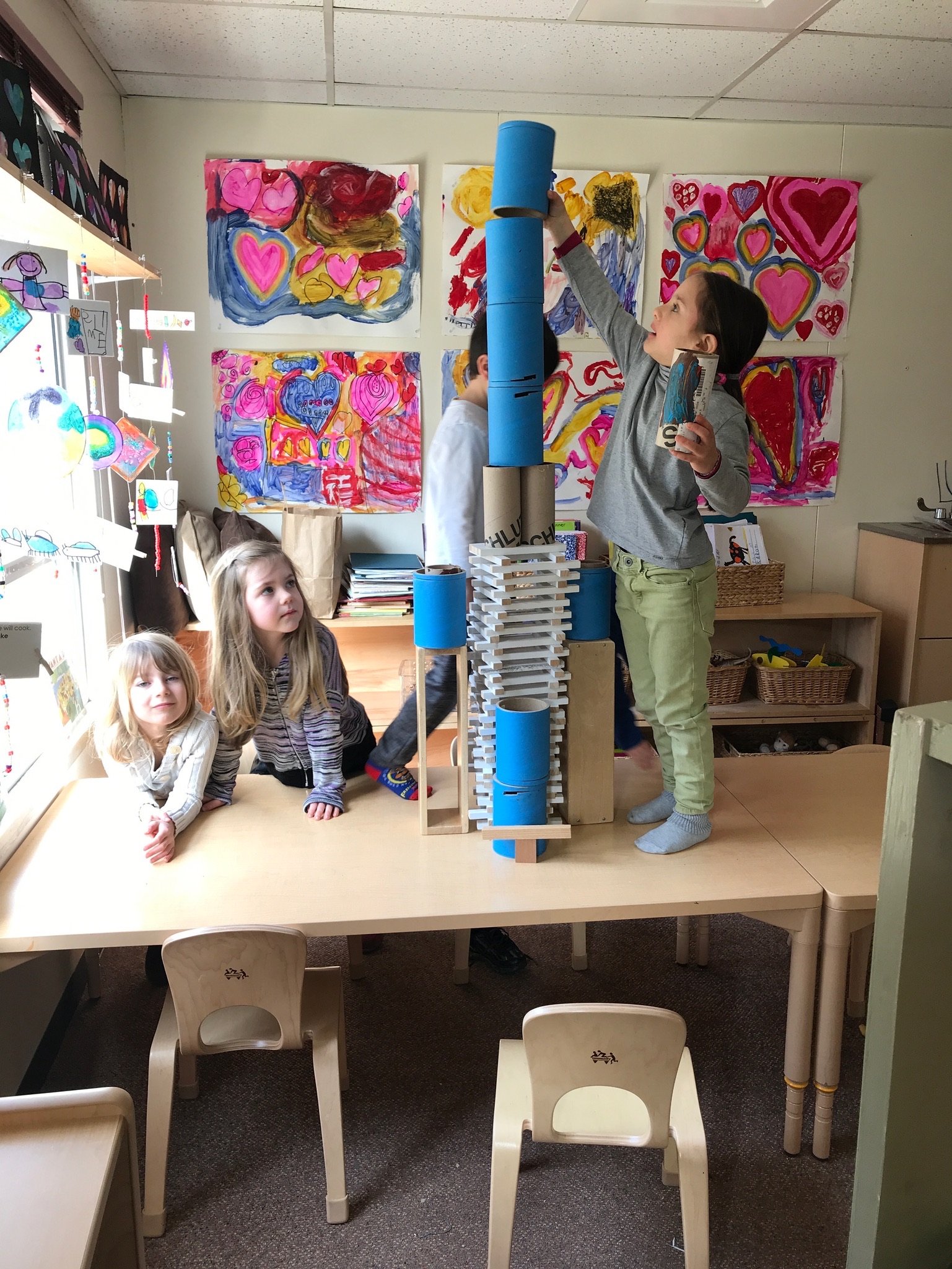
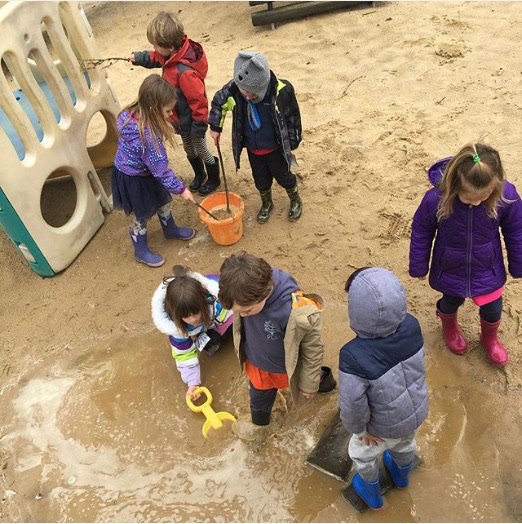
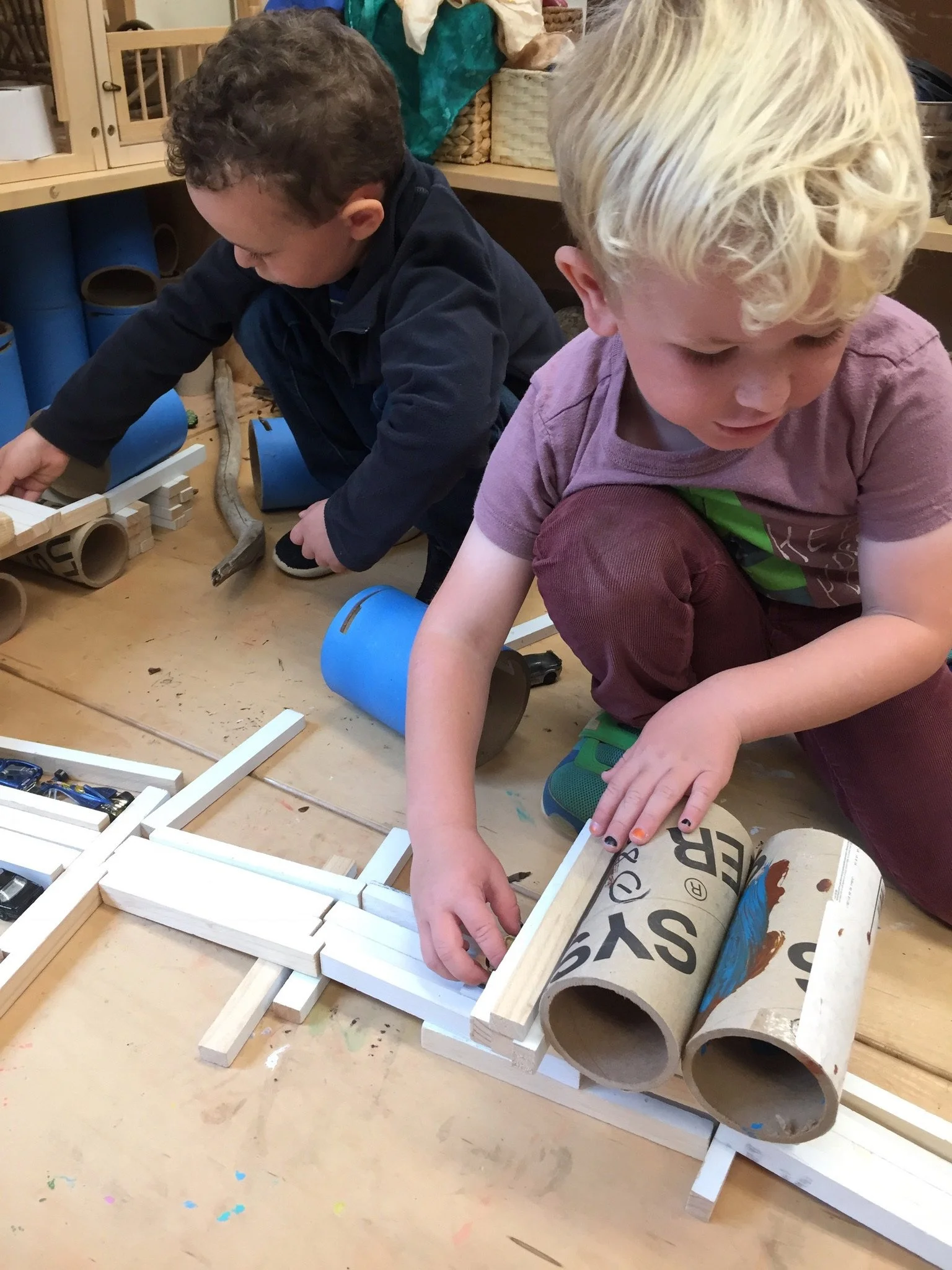
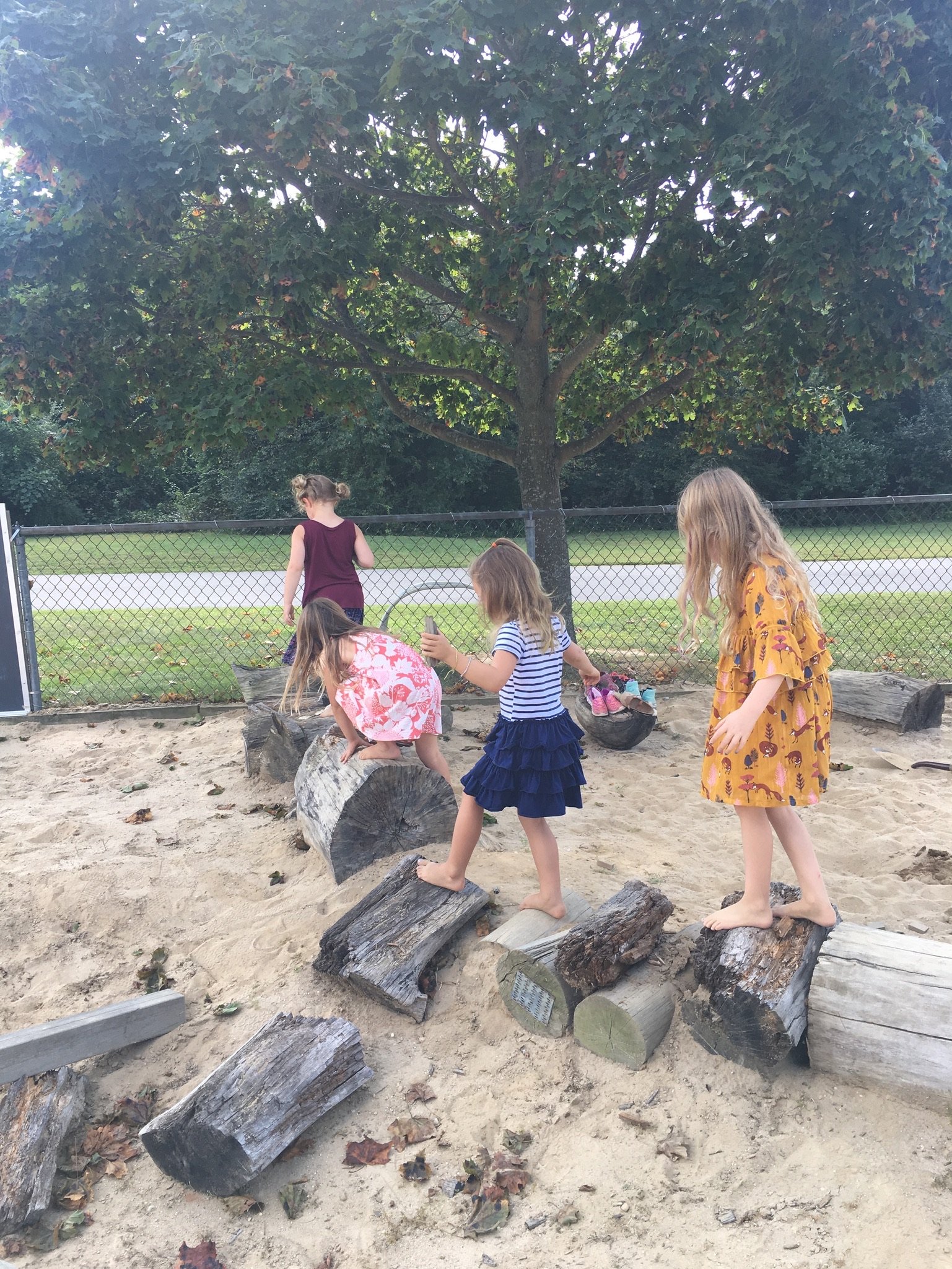
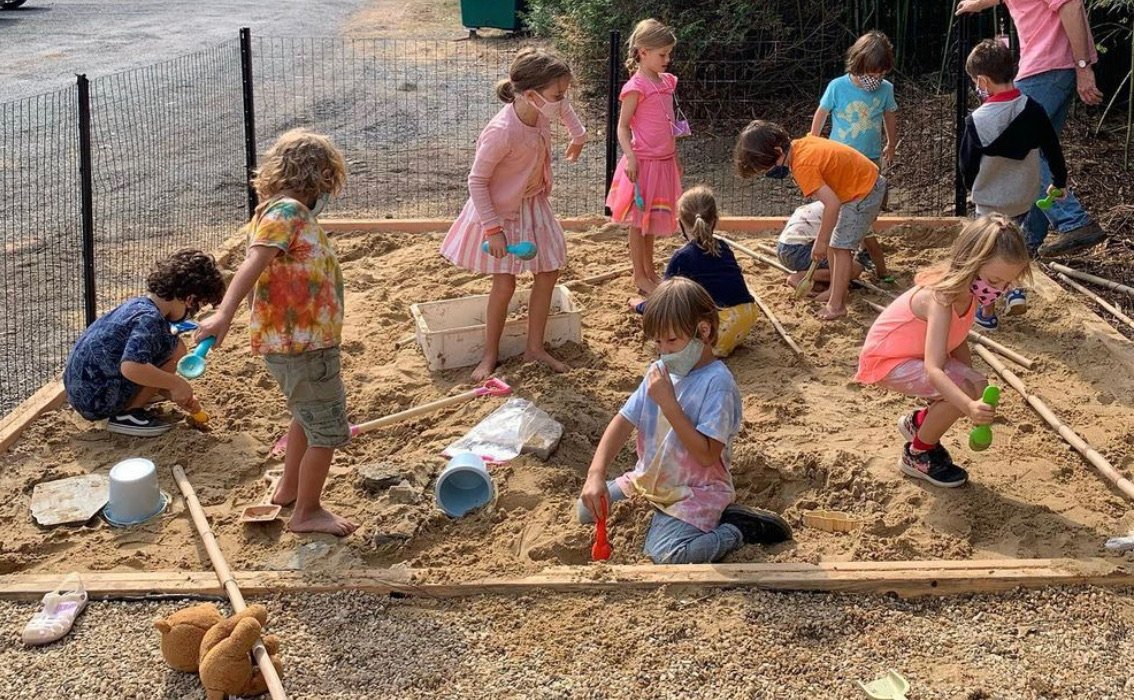
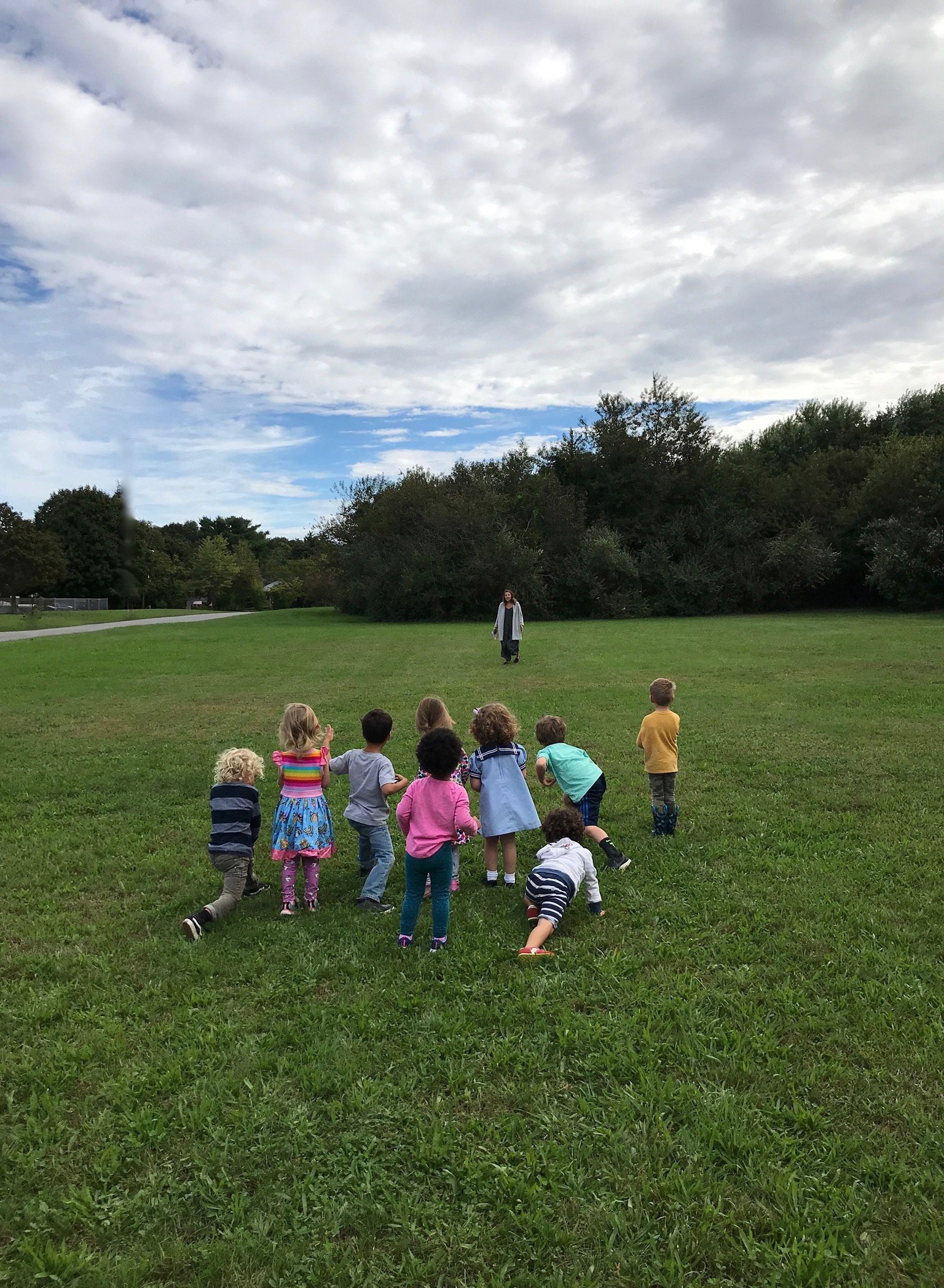
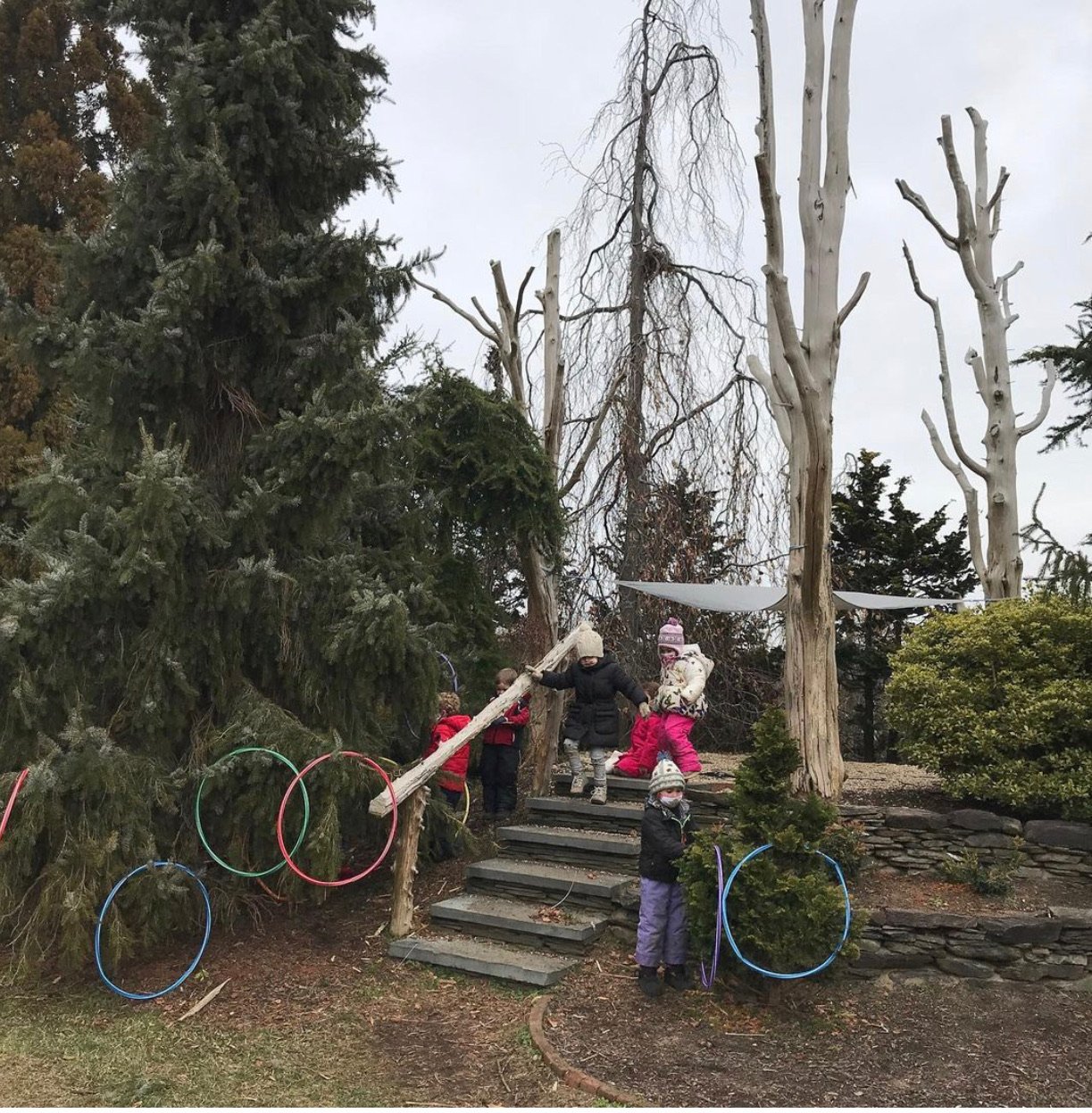
JOY MATTERS.
KEY ELEMENTS OF PLAY BASED LEARNING AT PCS:
Time · Space · Observation · Loose Parts · Open Ended Materials ·. Outside Everyday · Real Tools · Opportunities to Extend Learning

